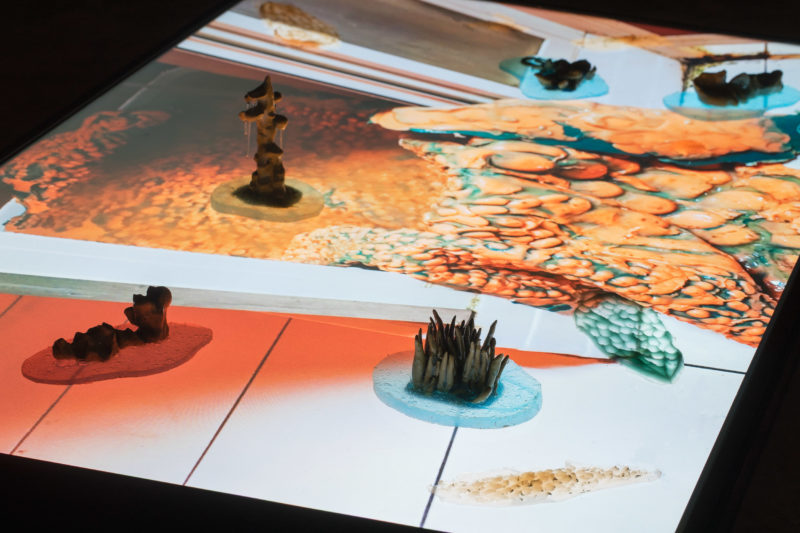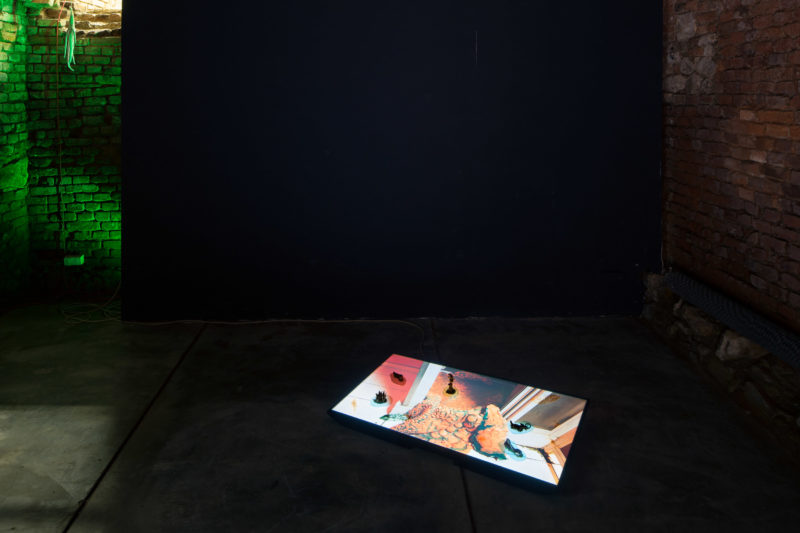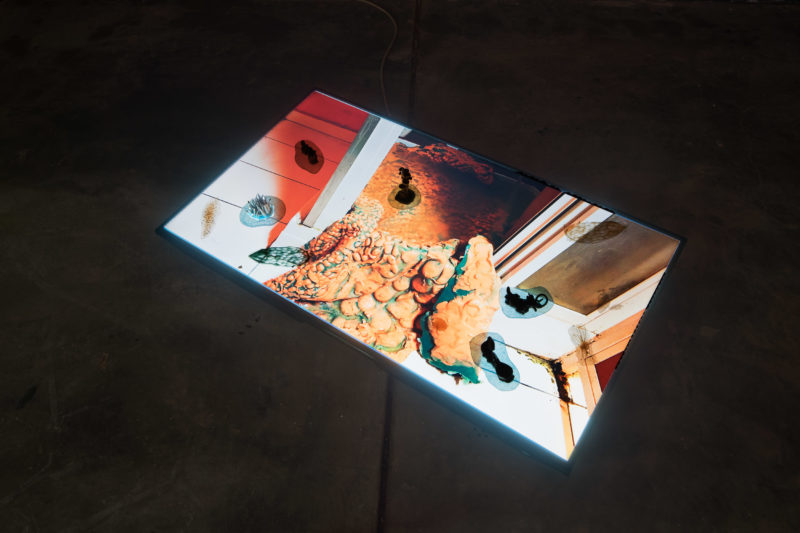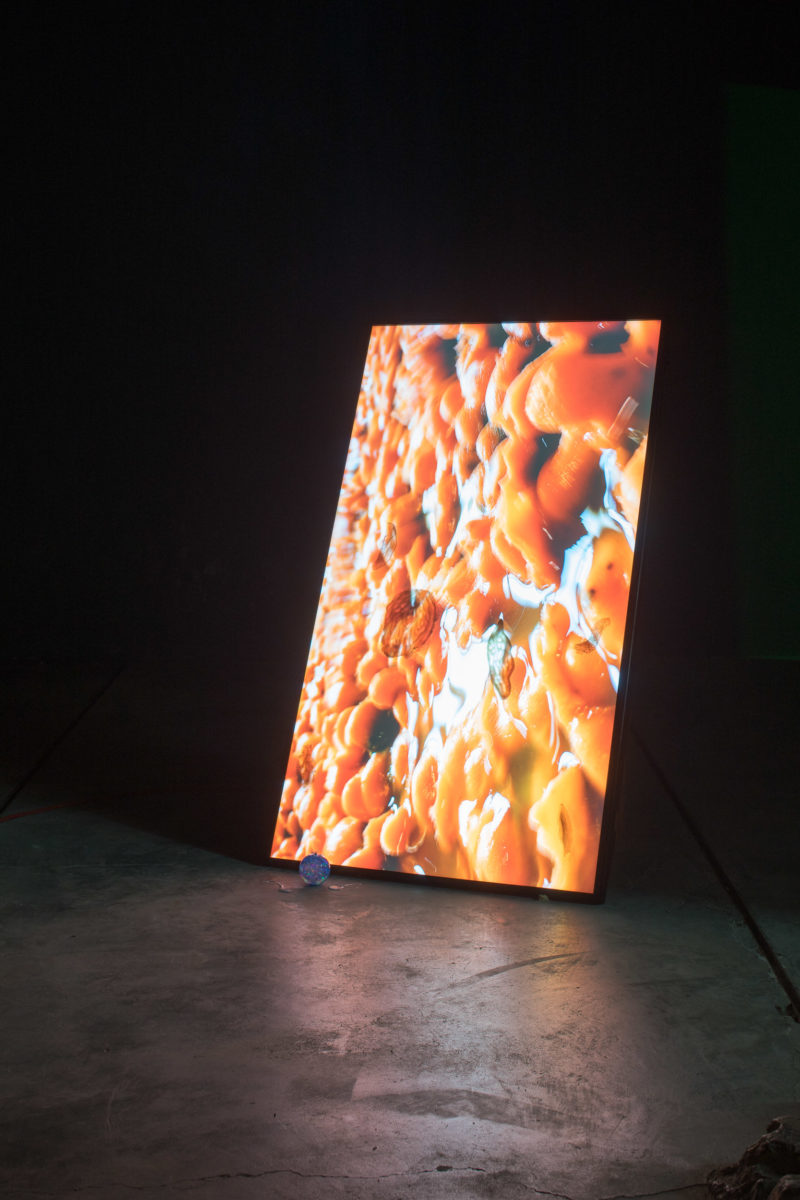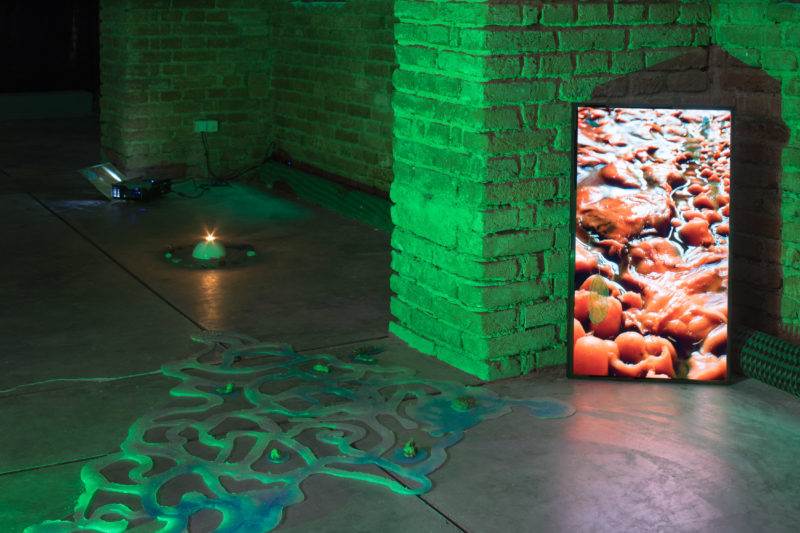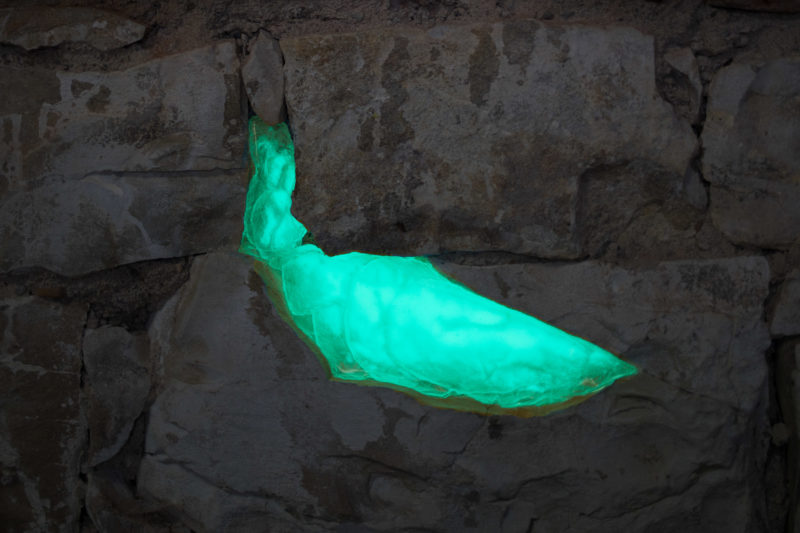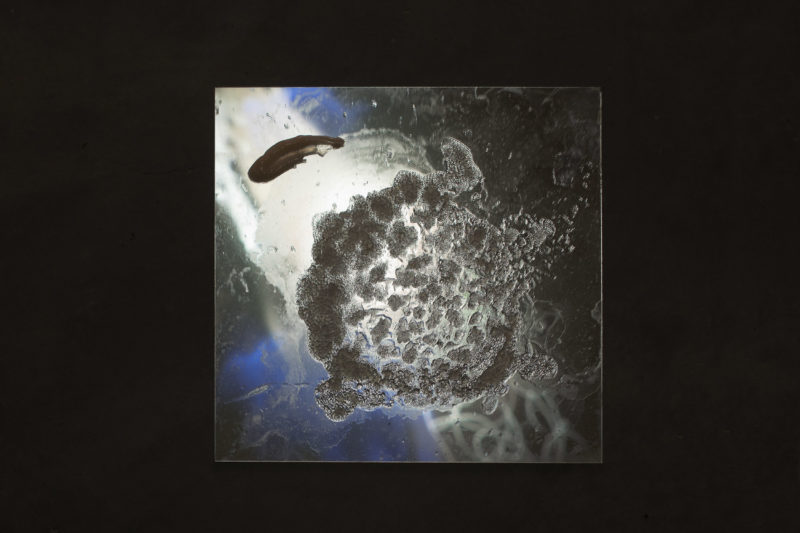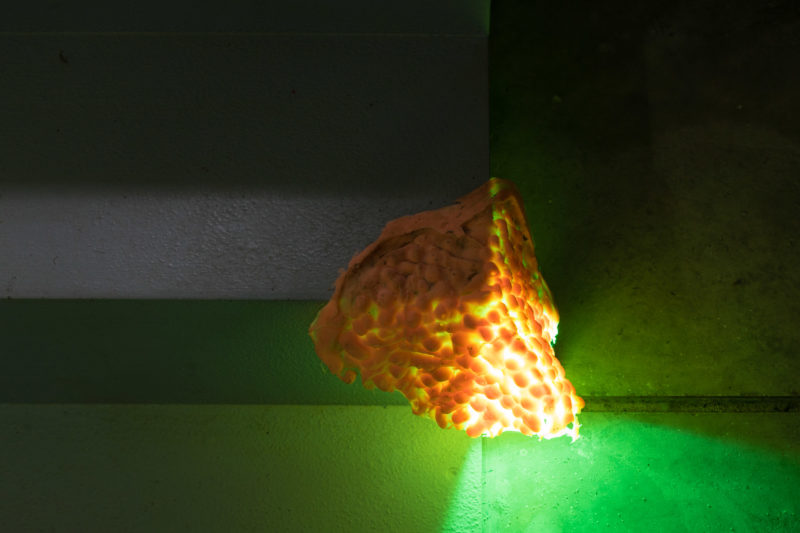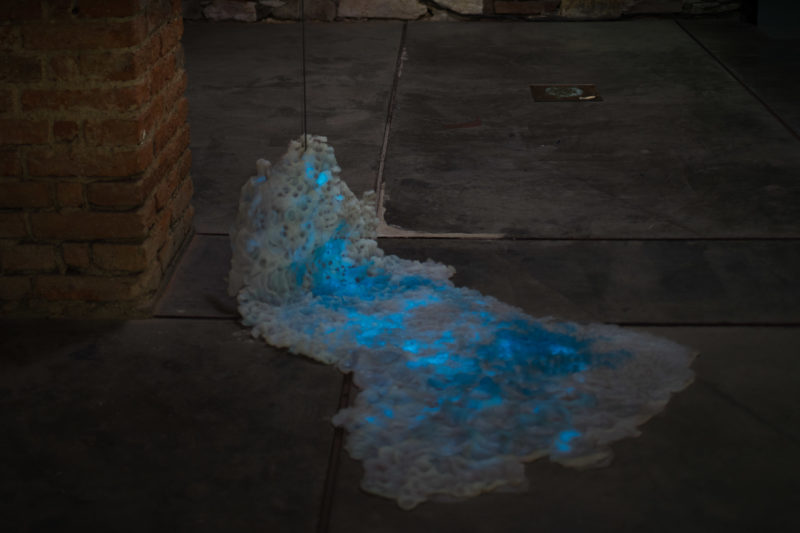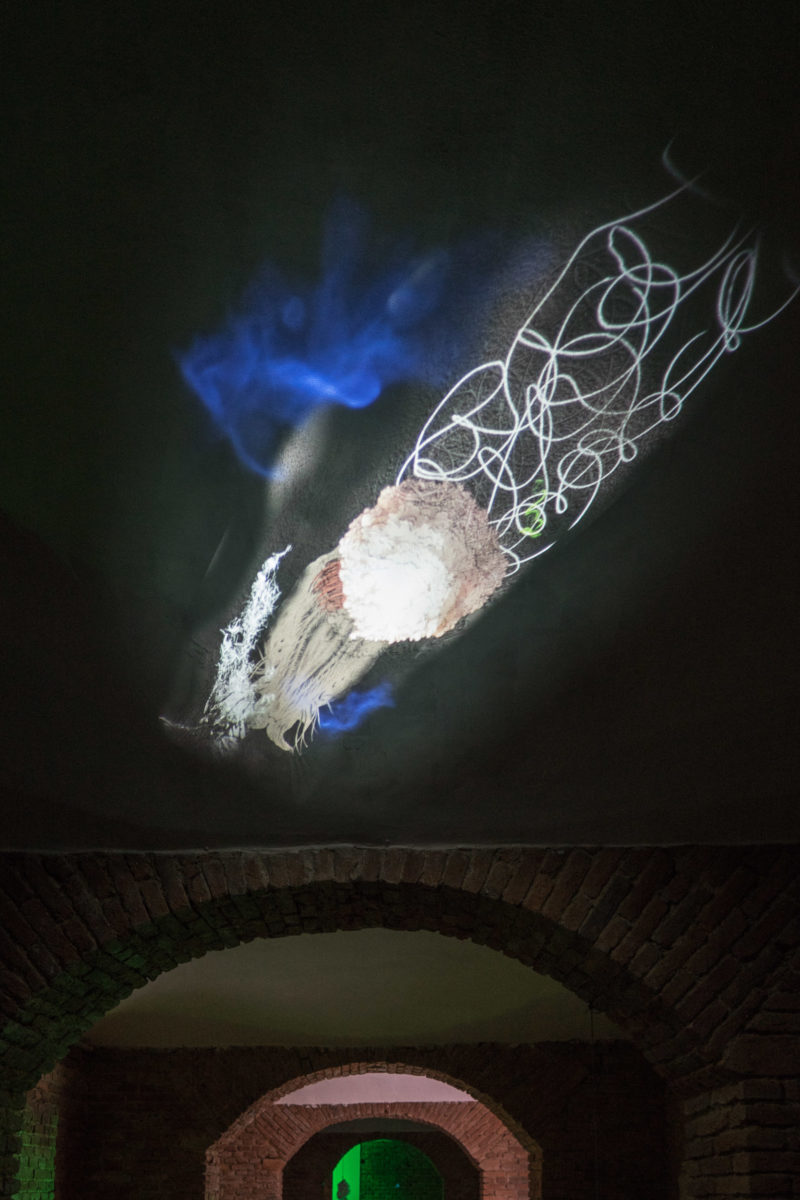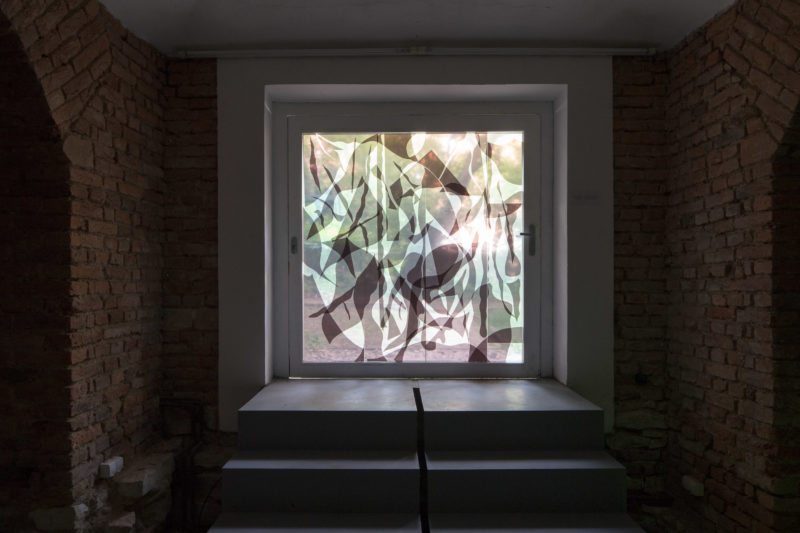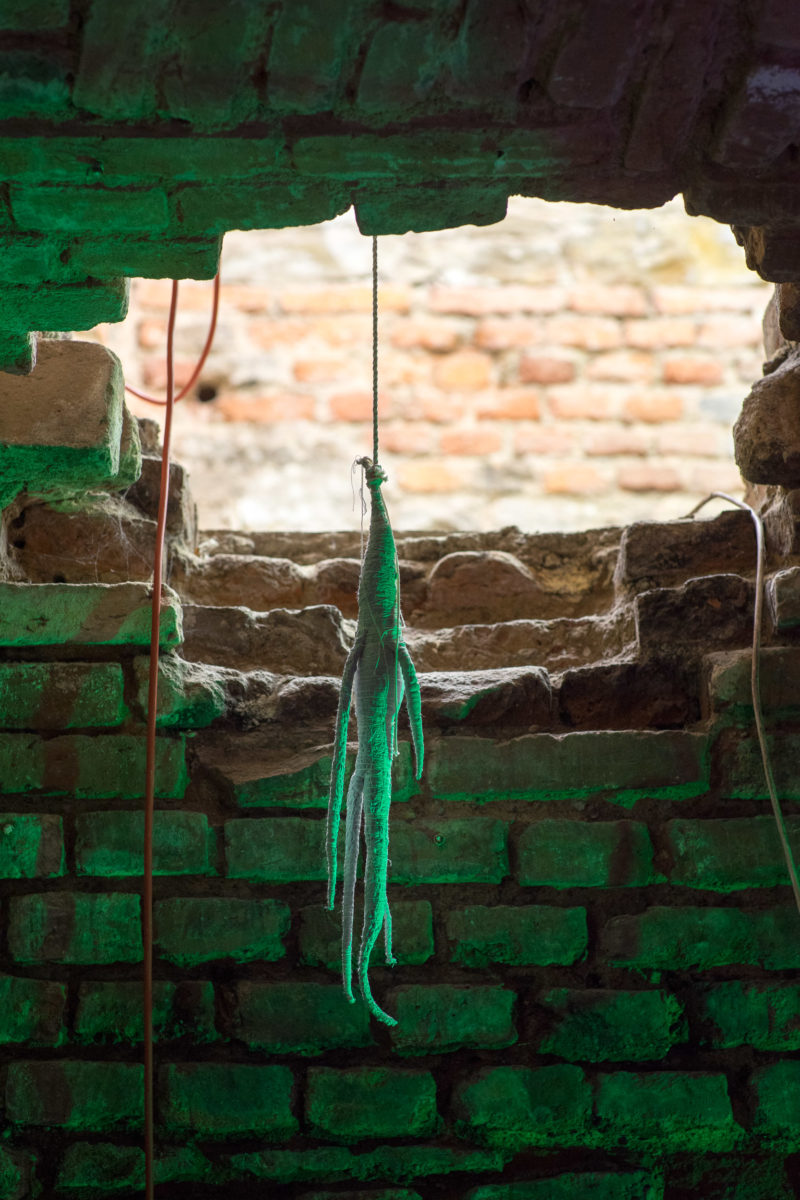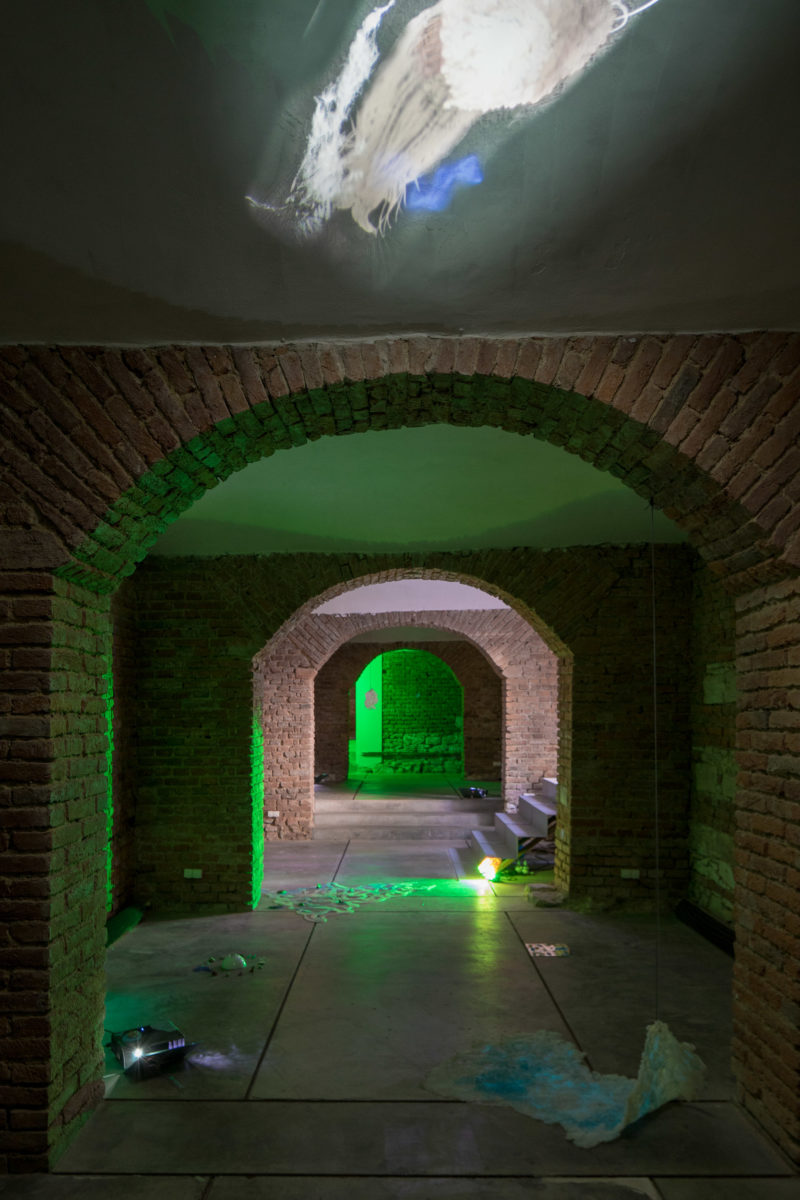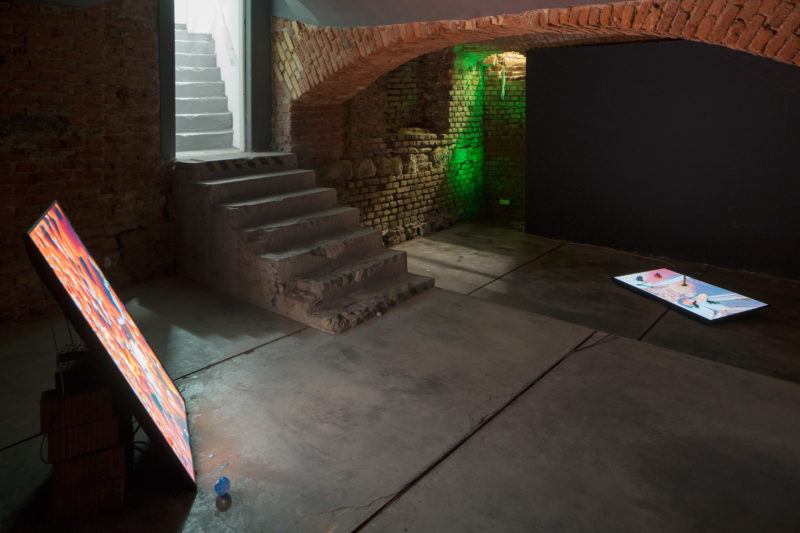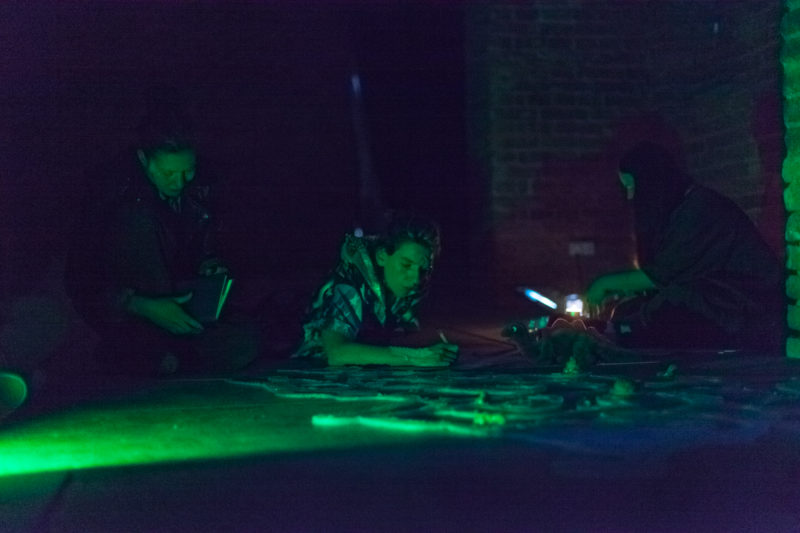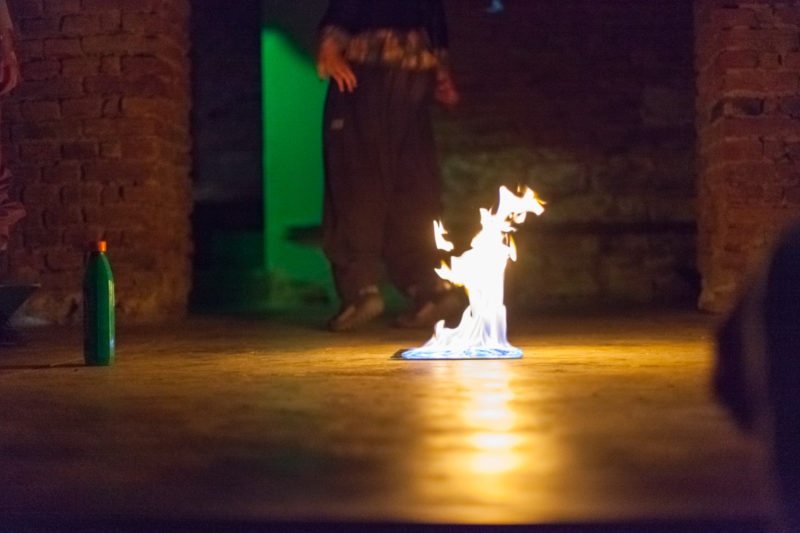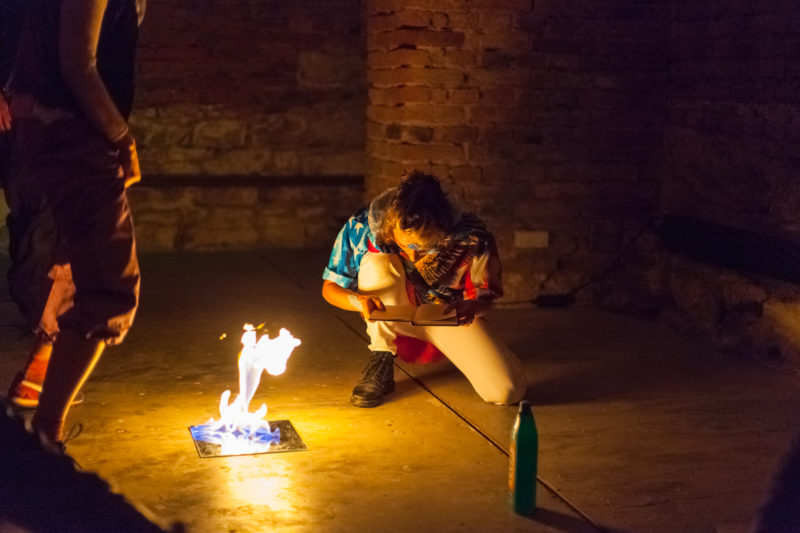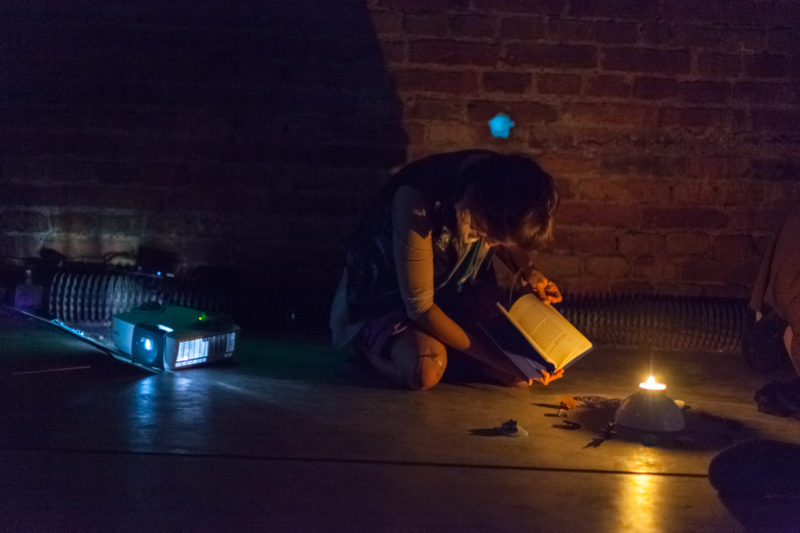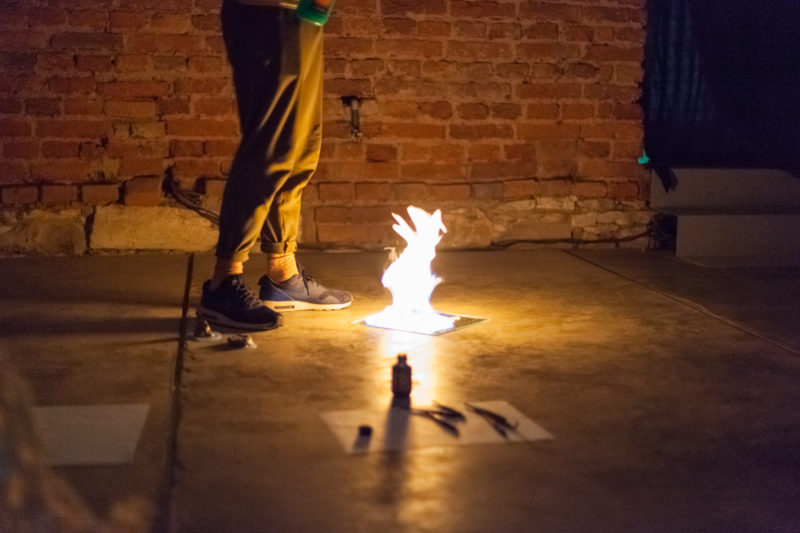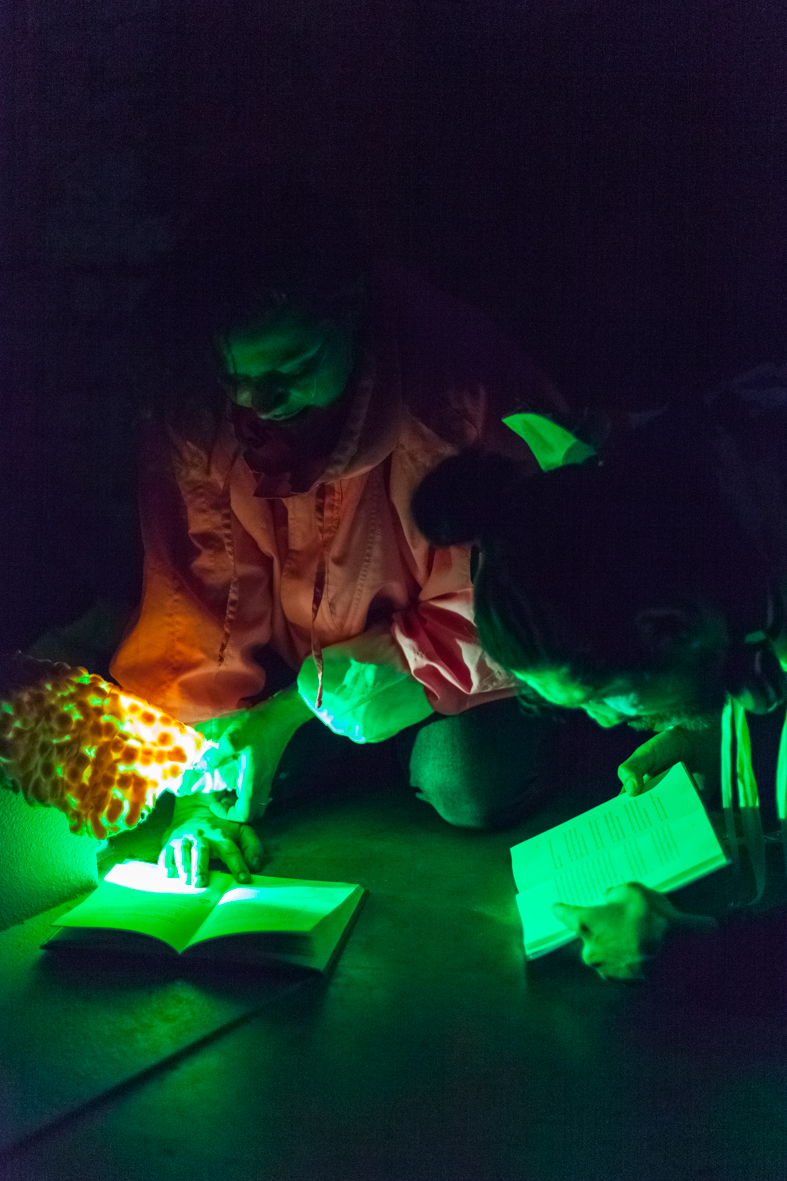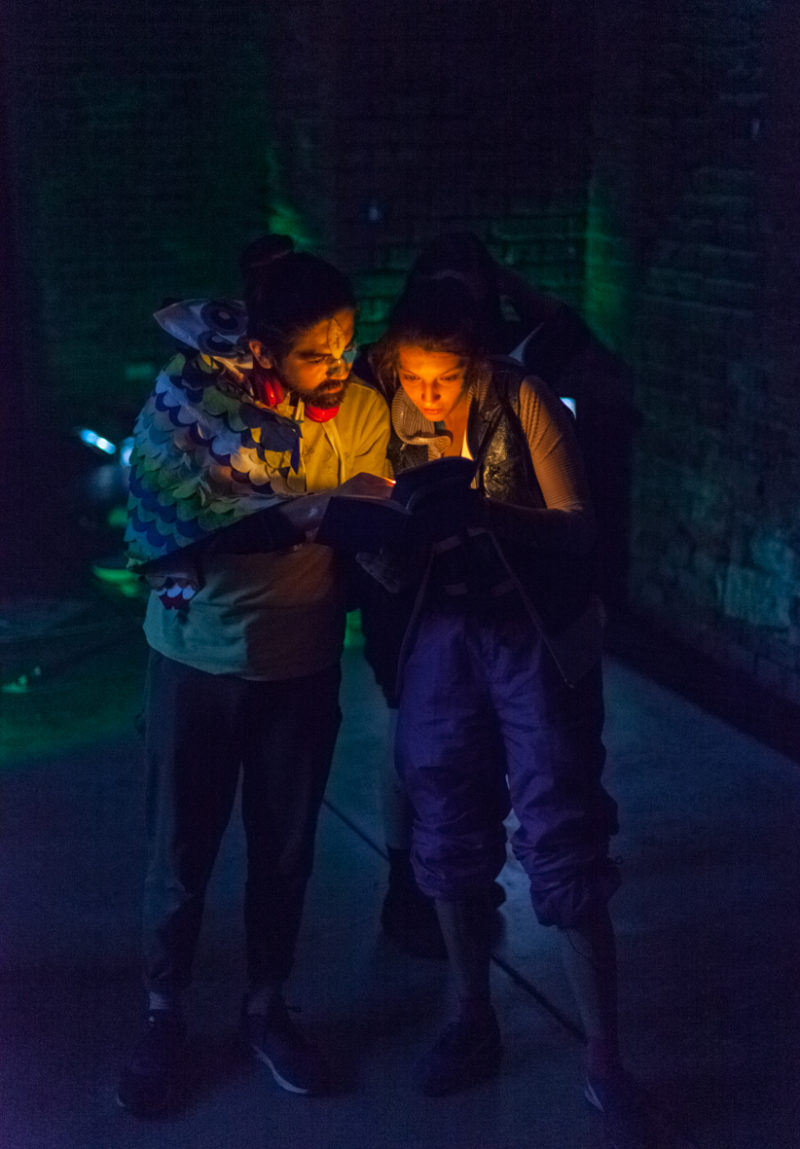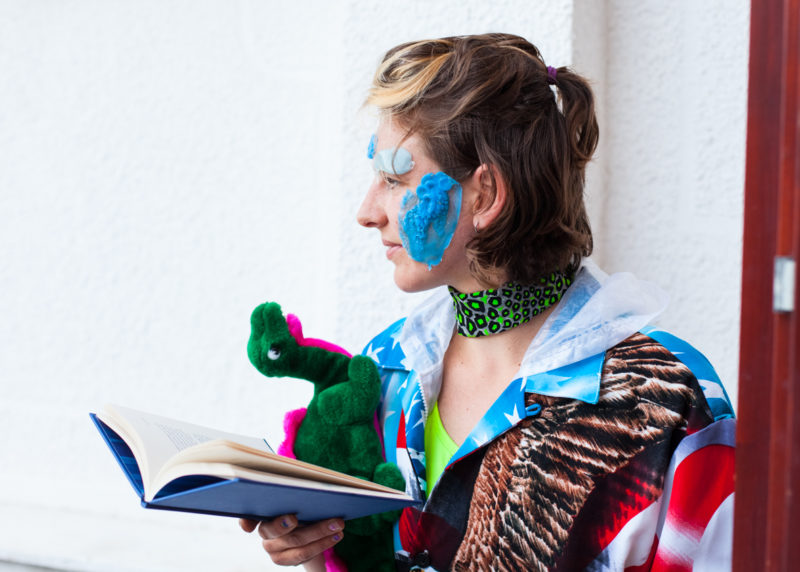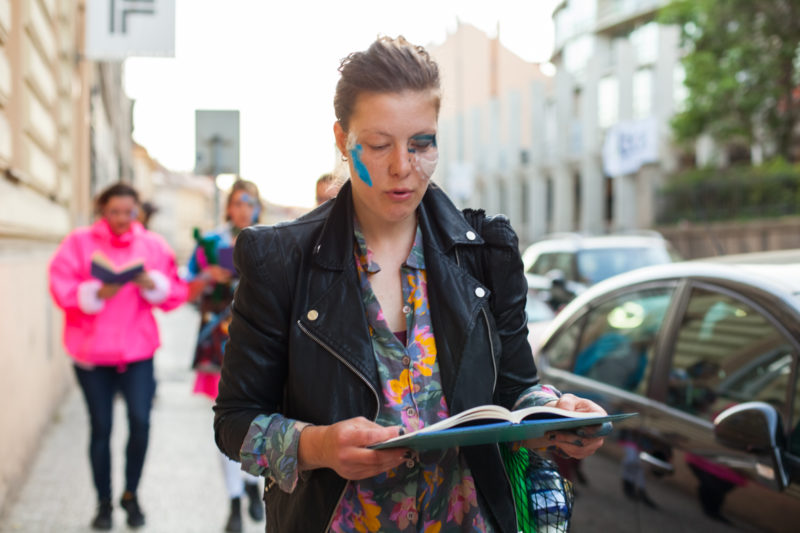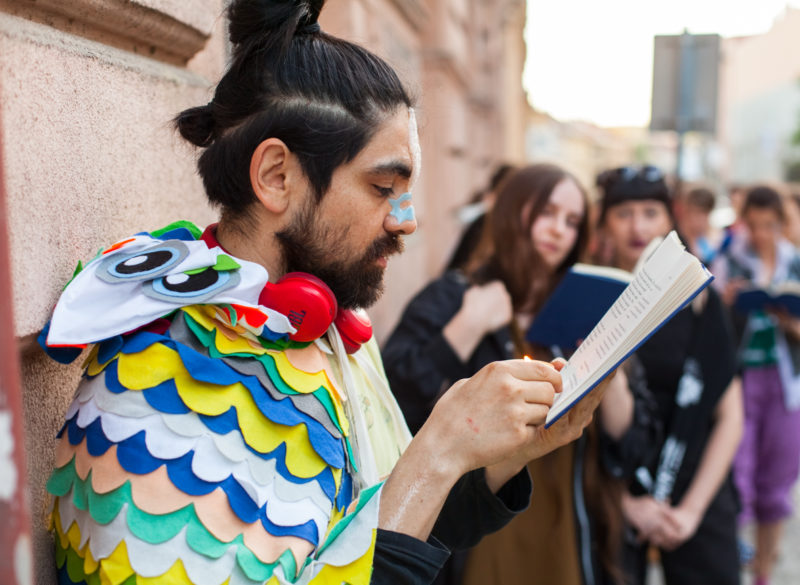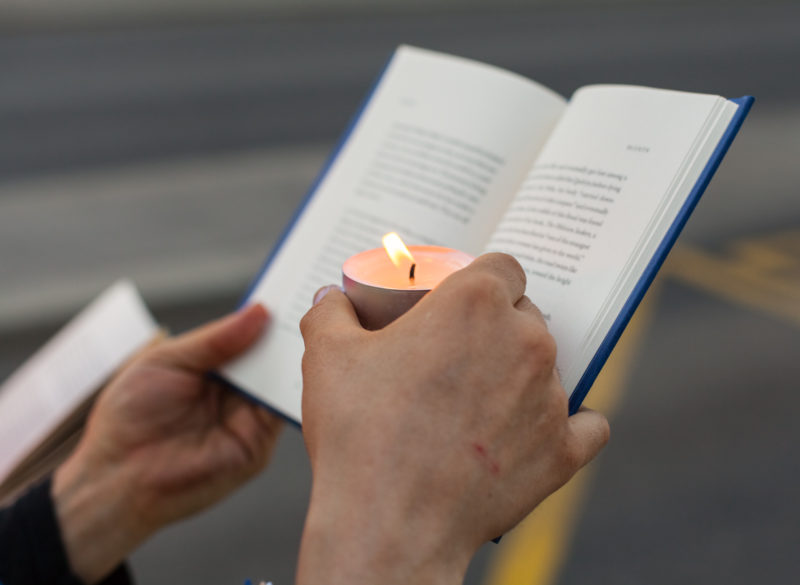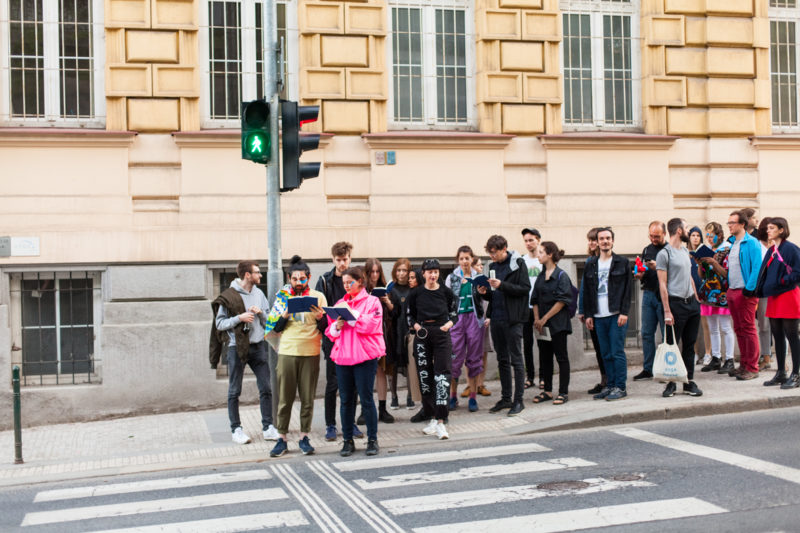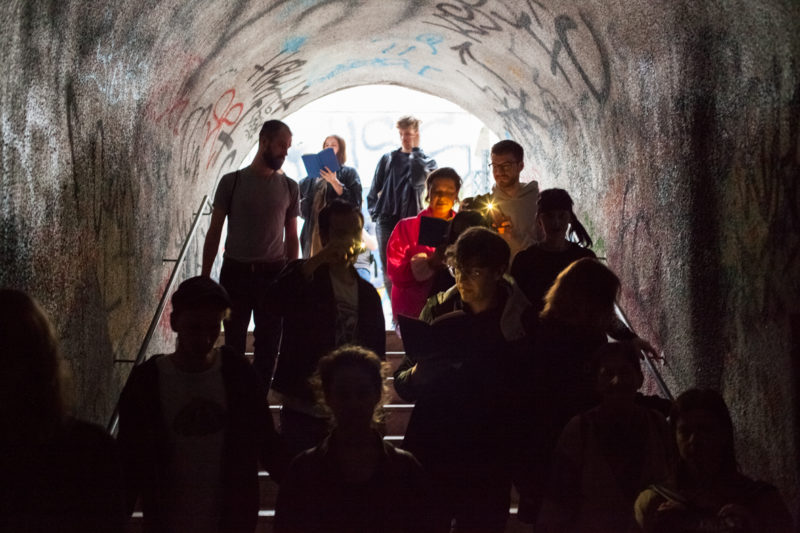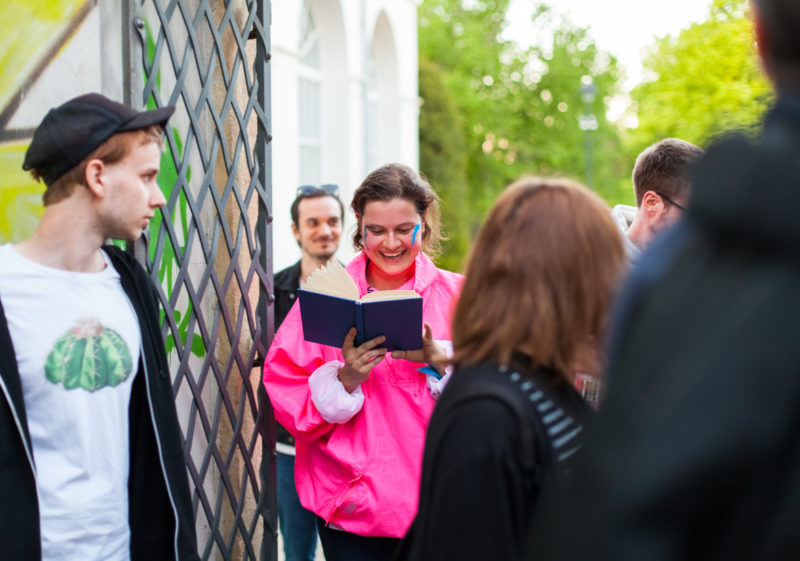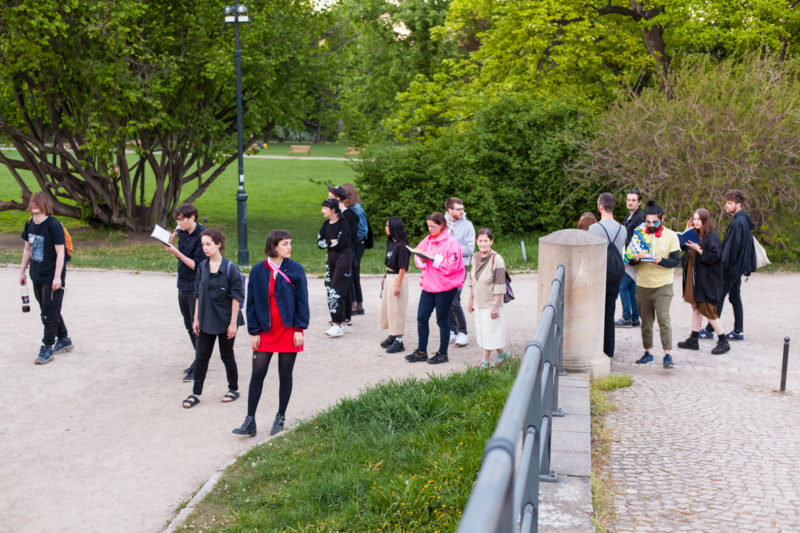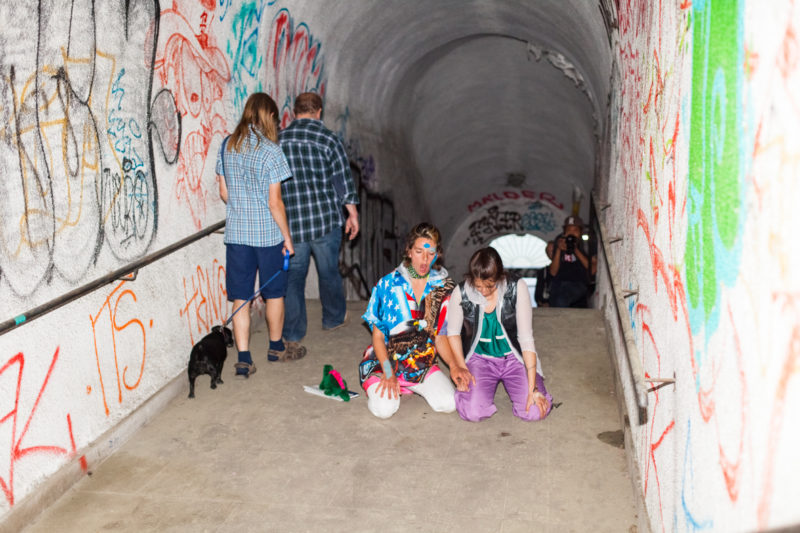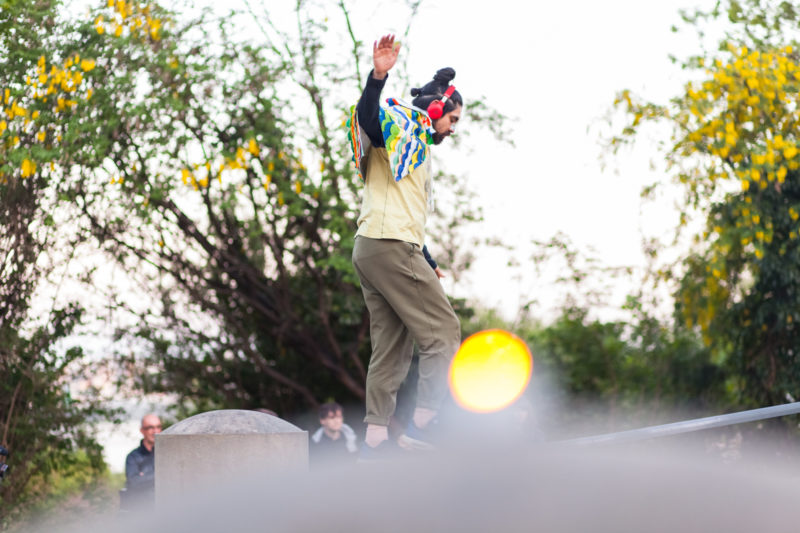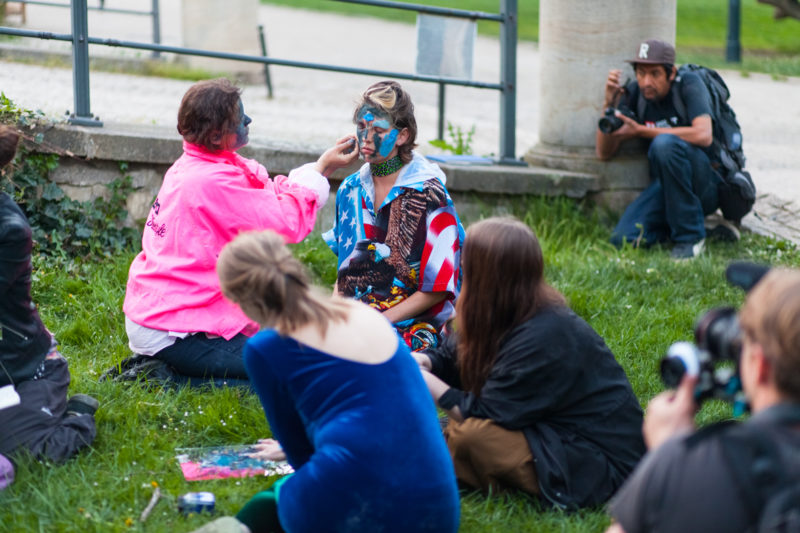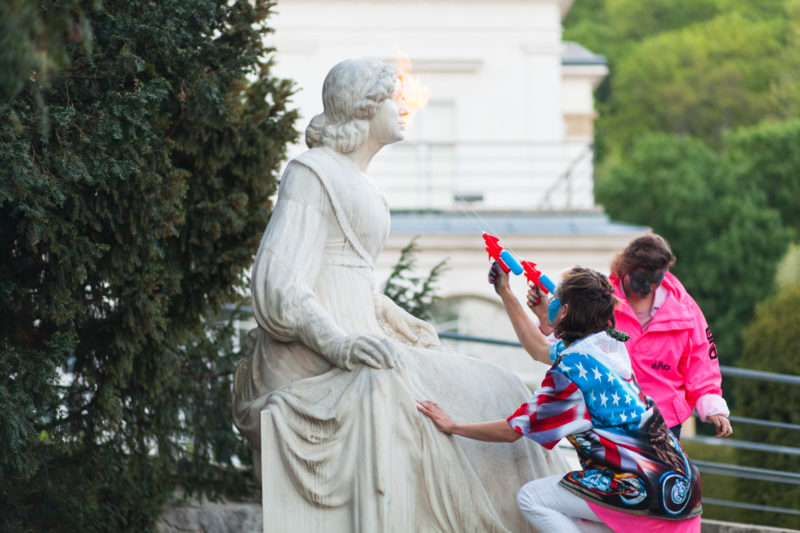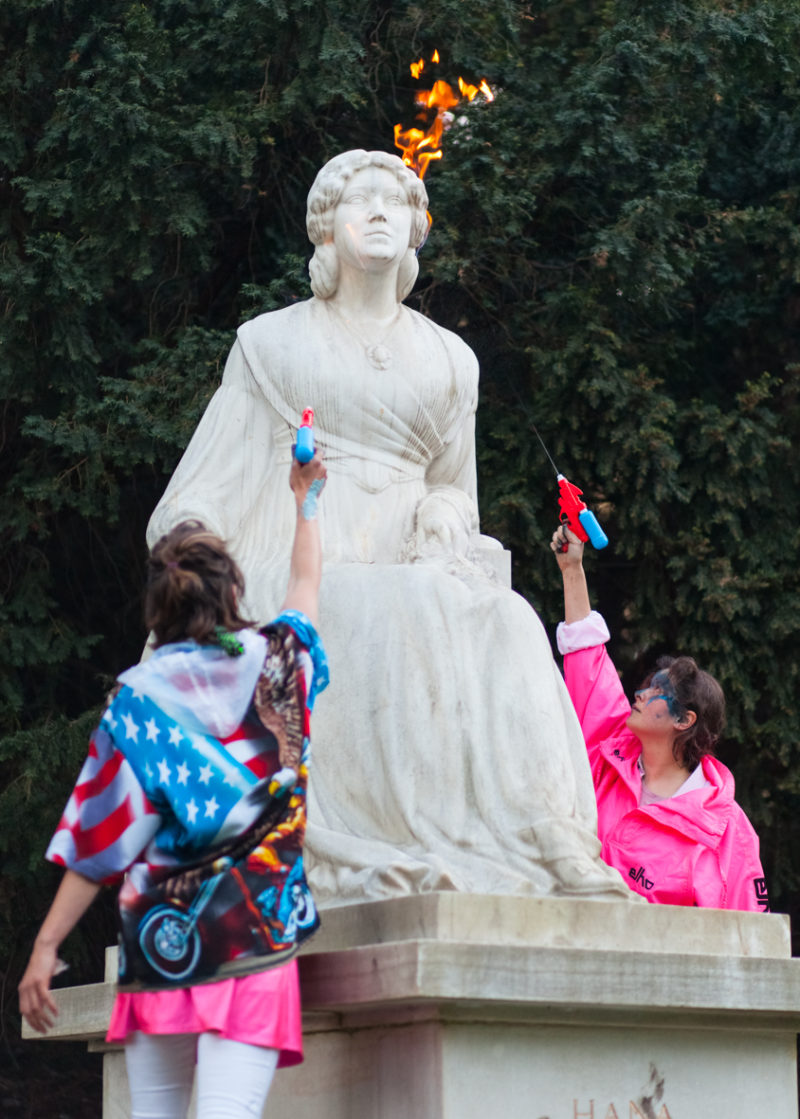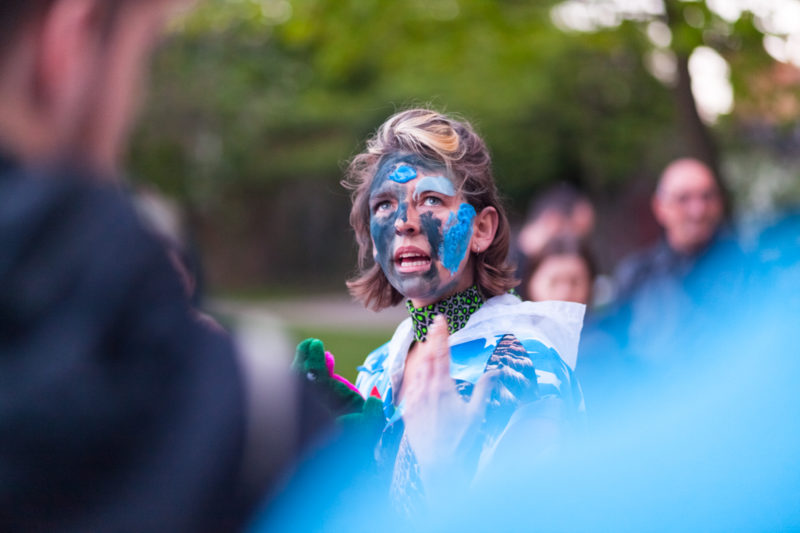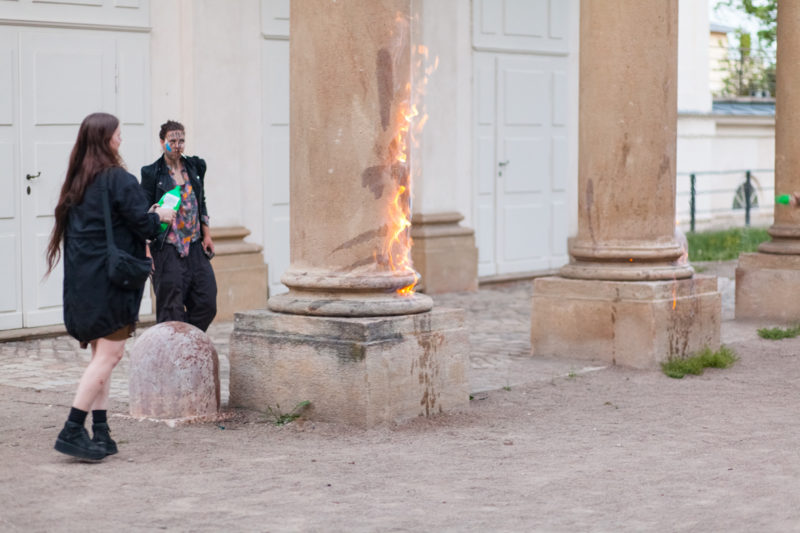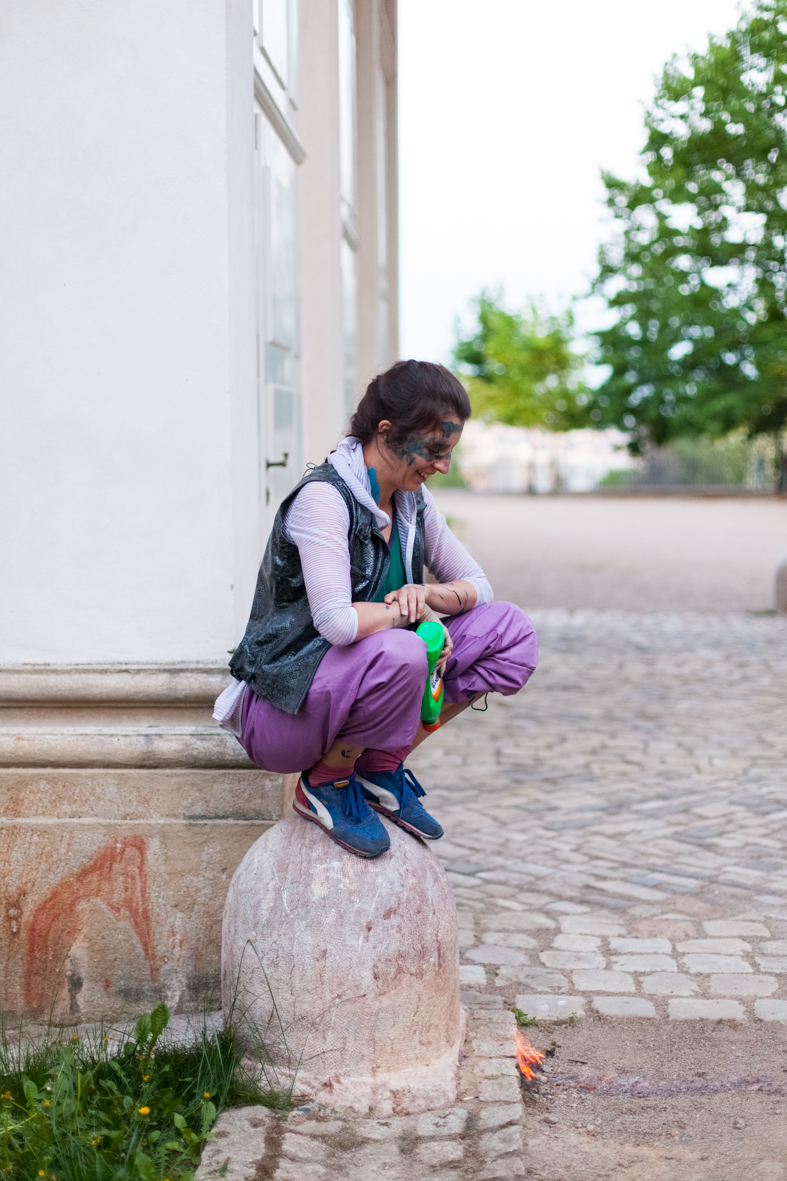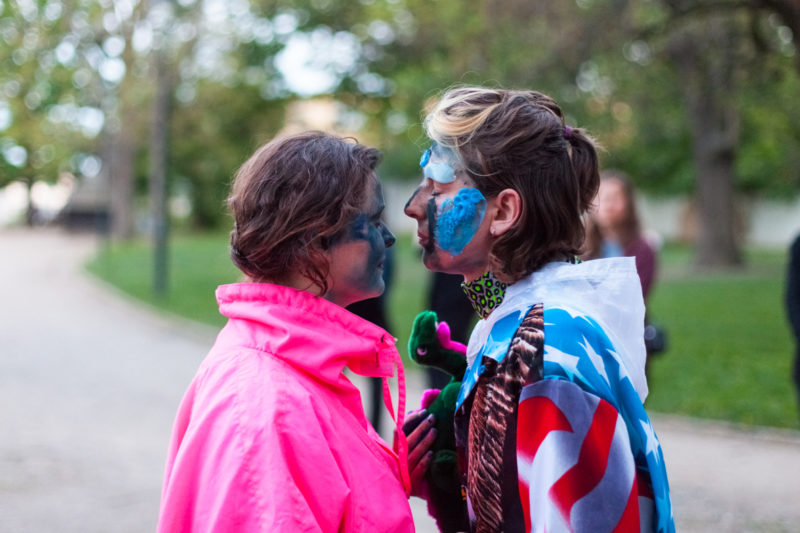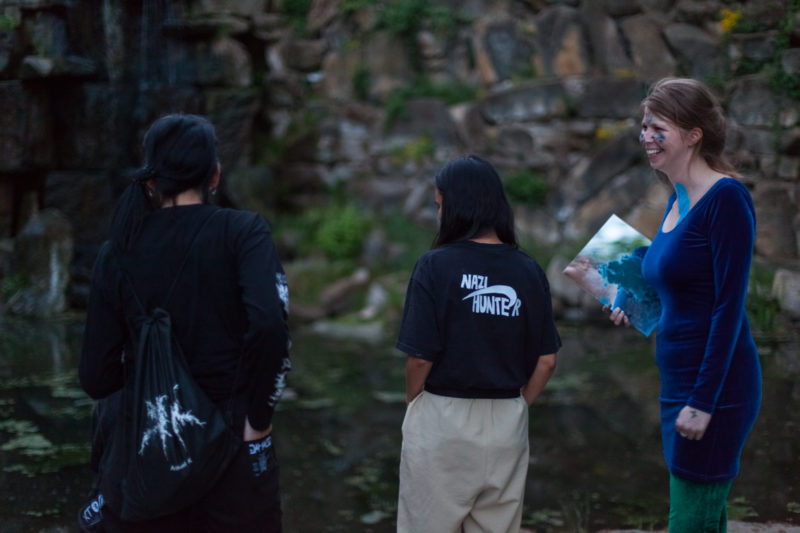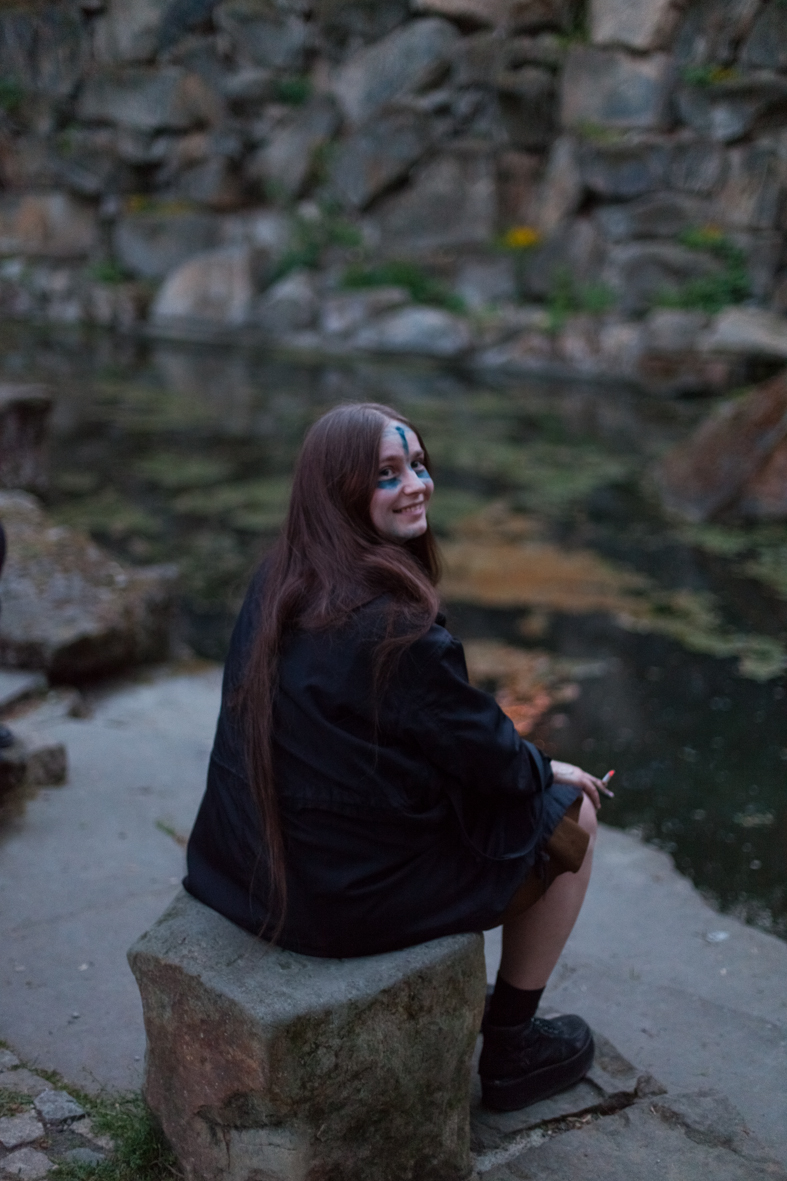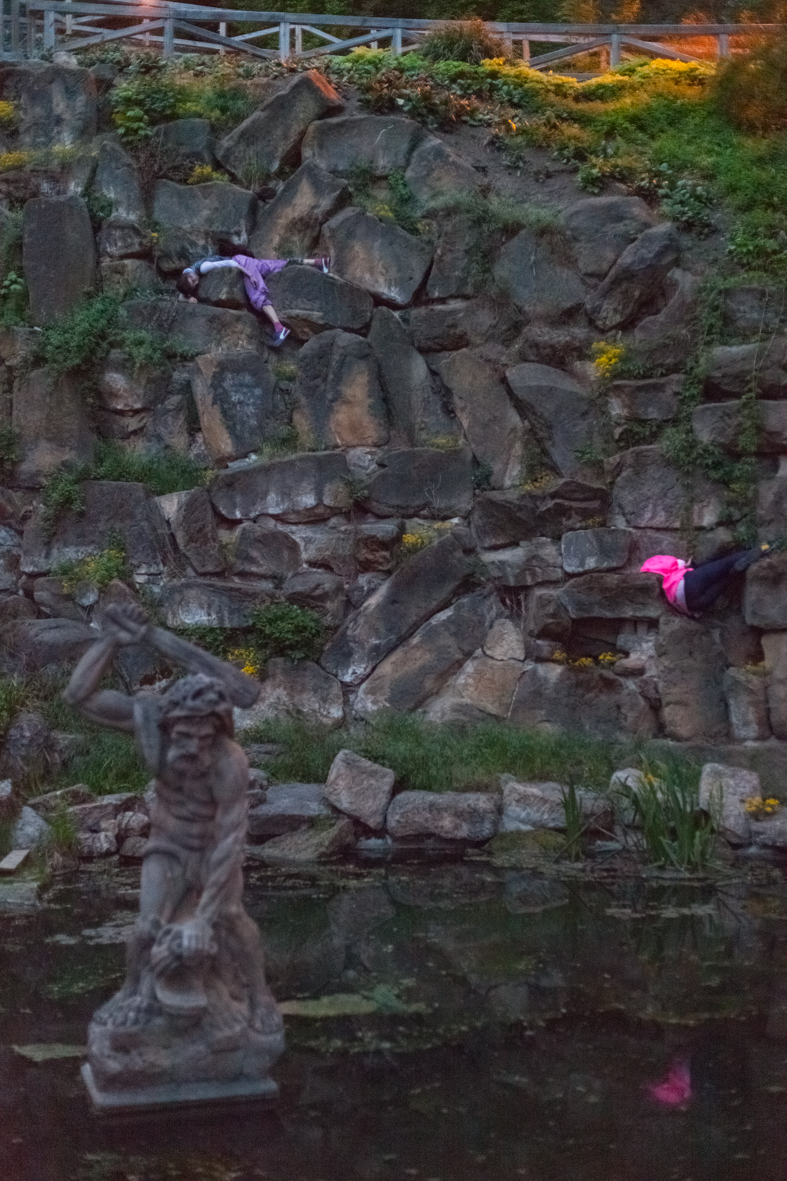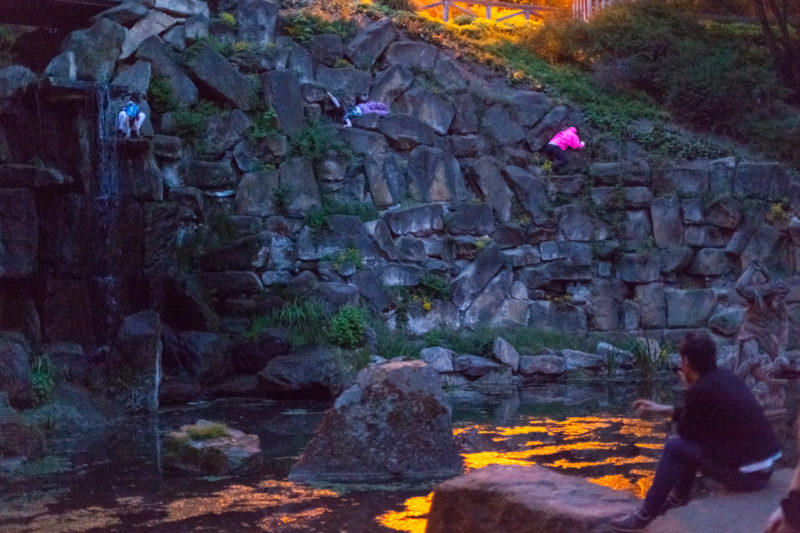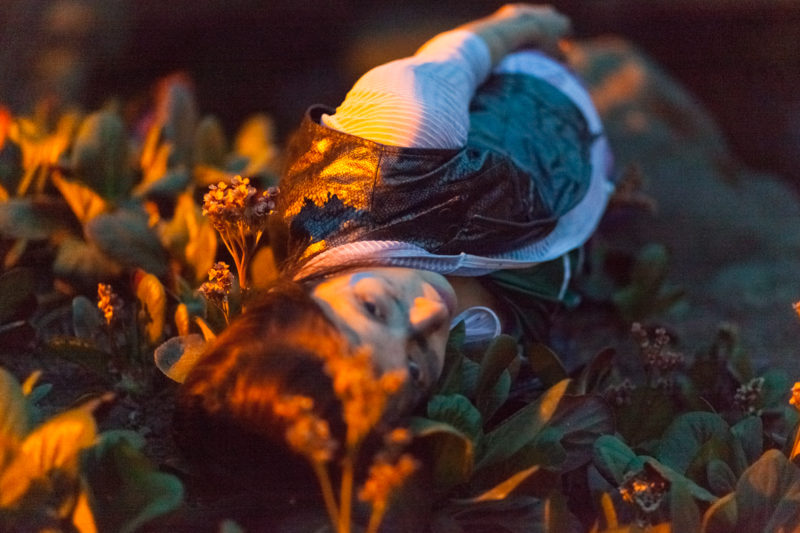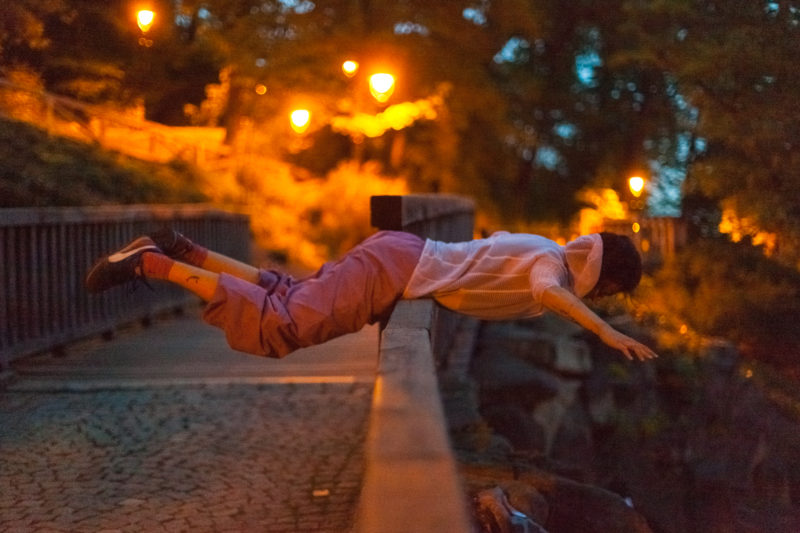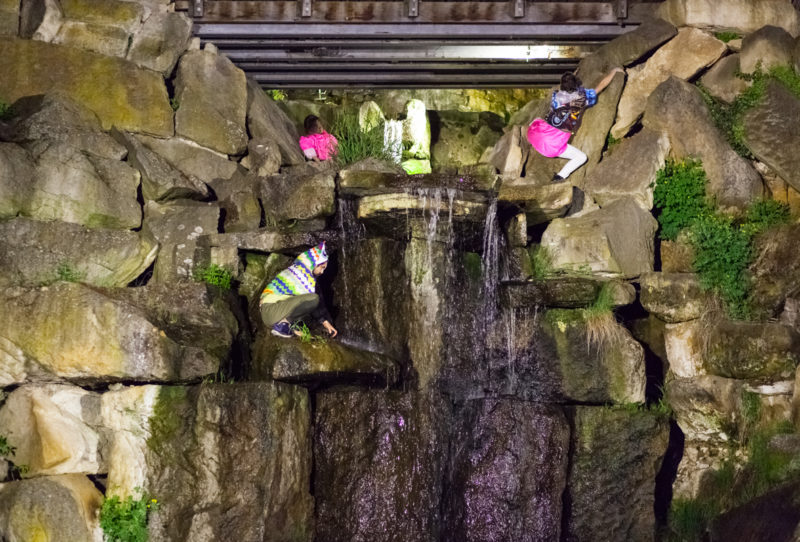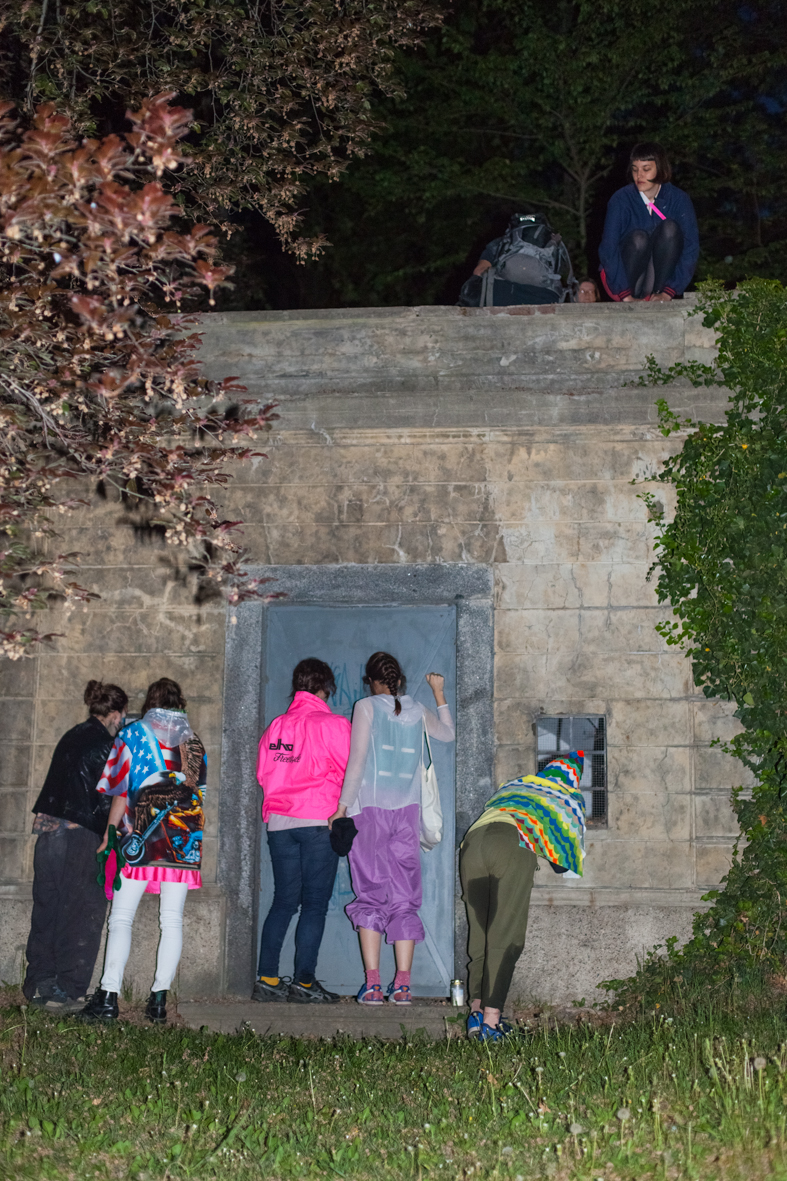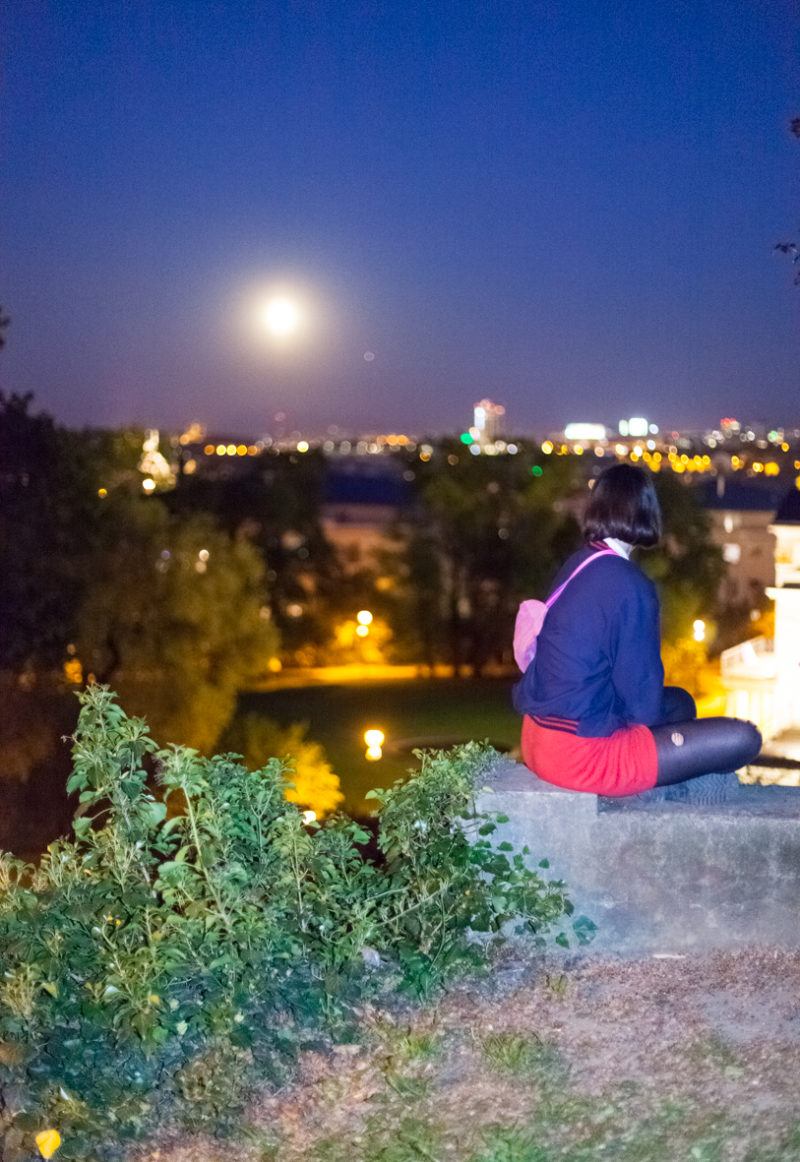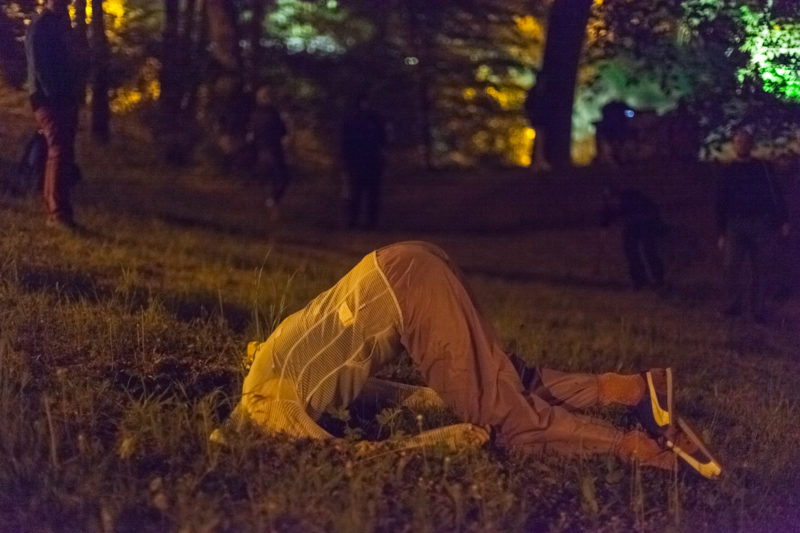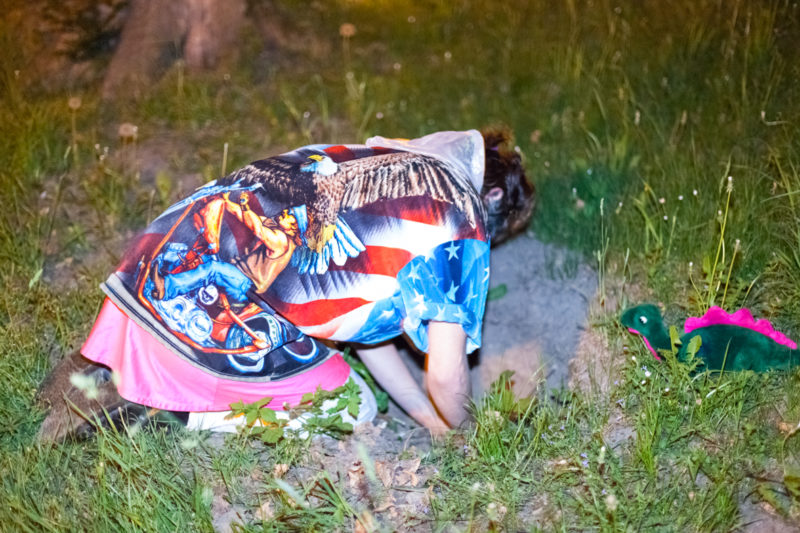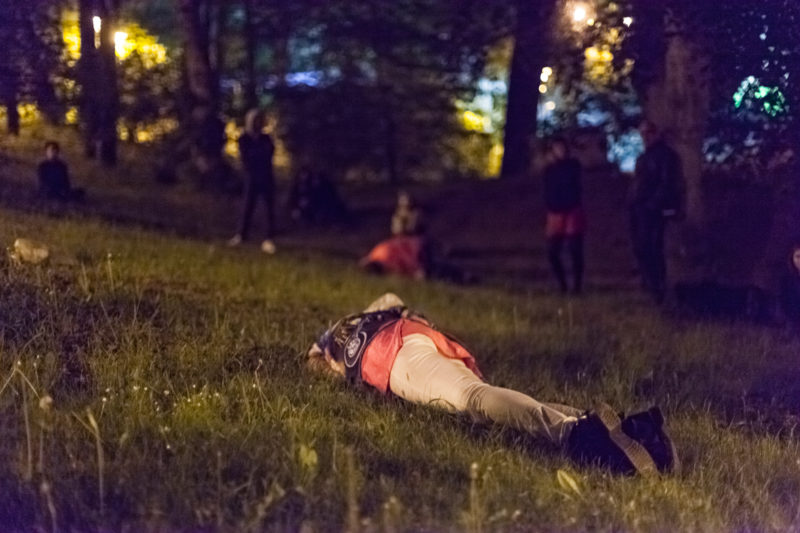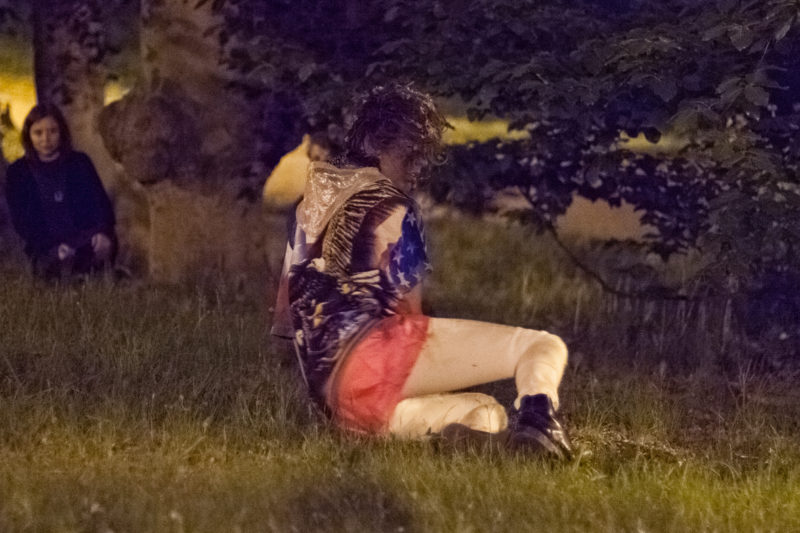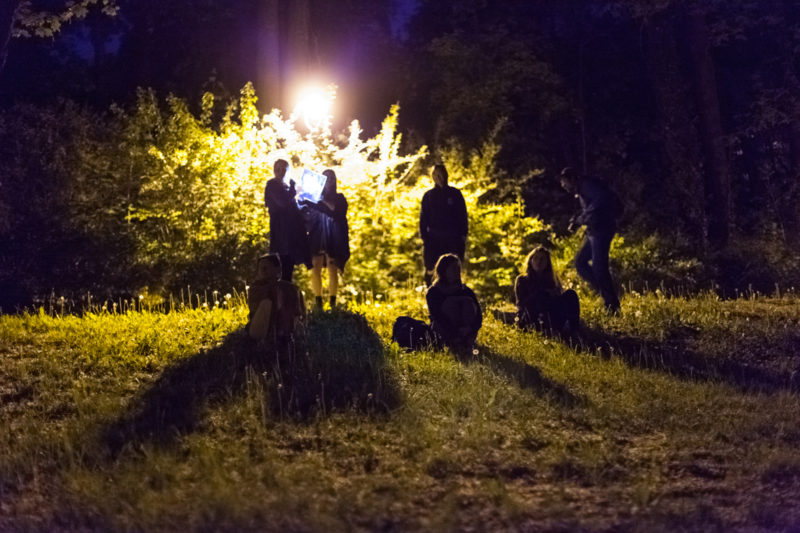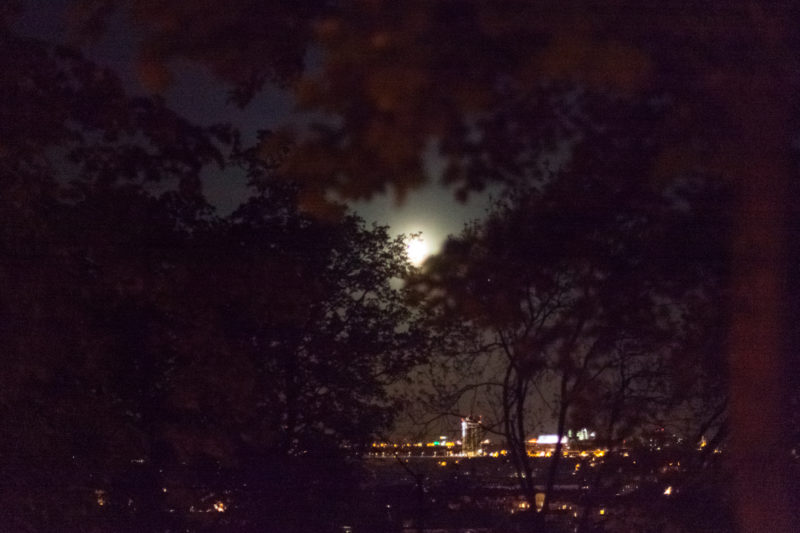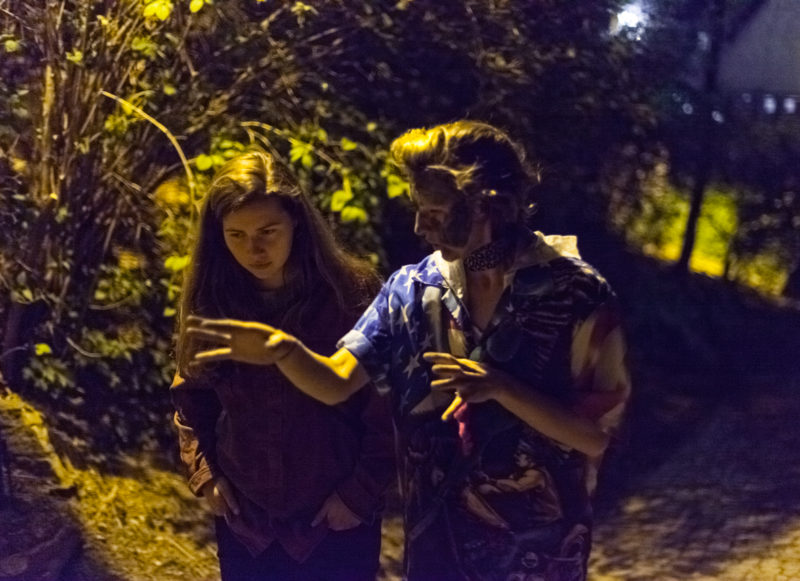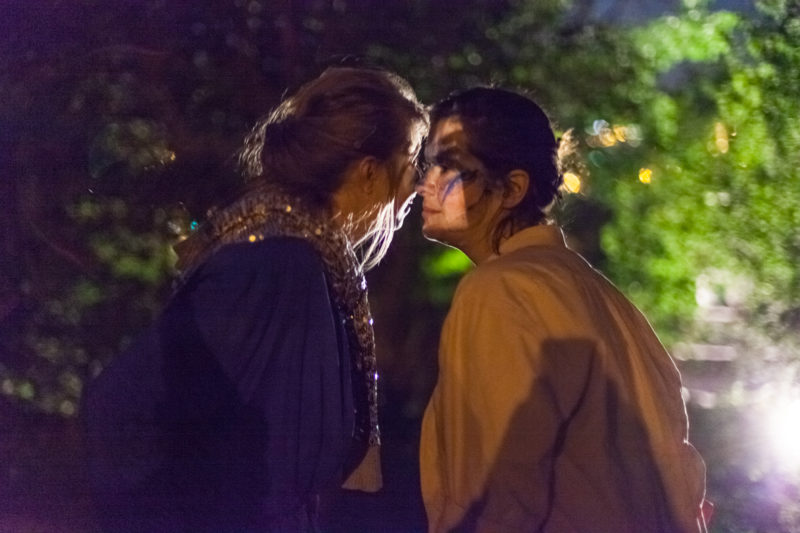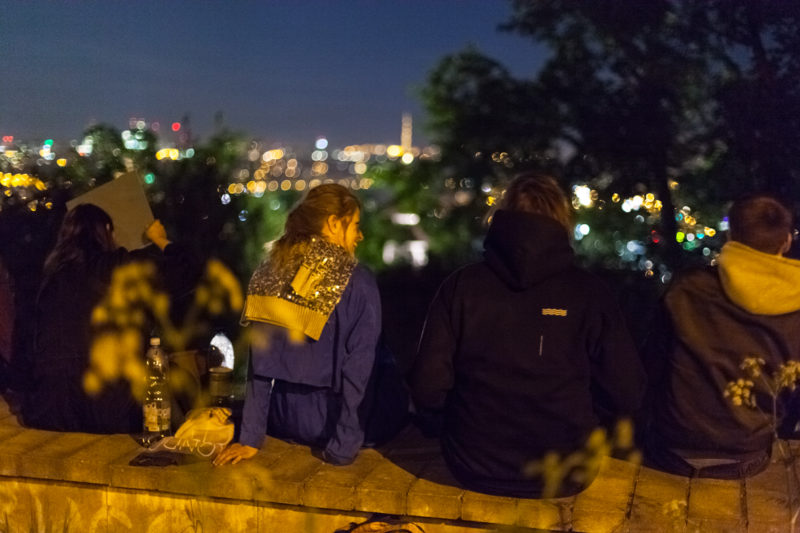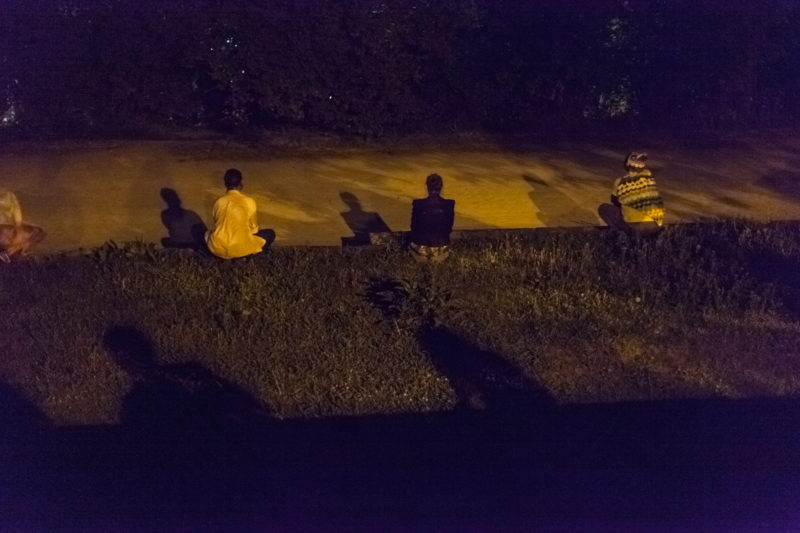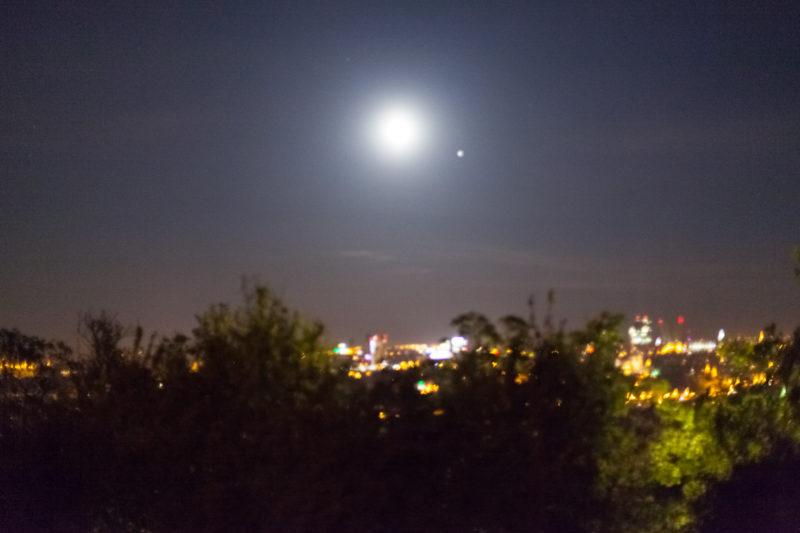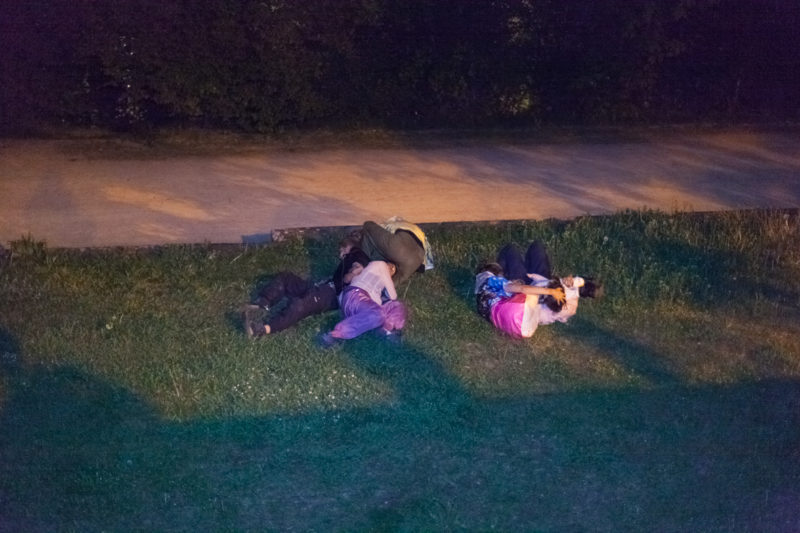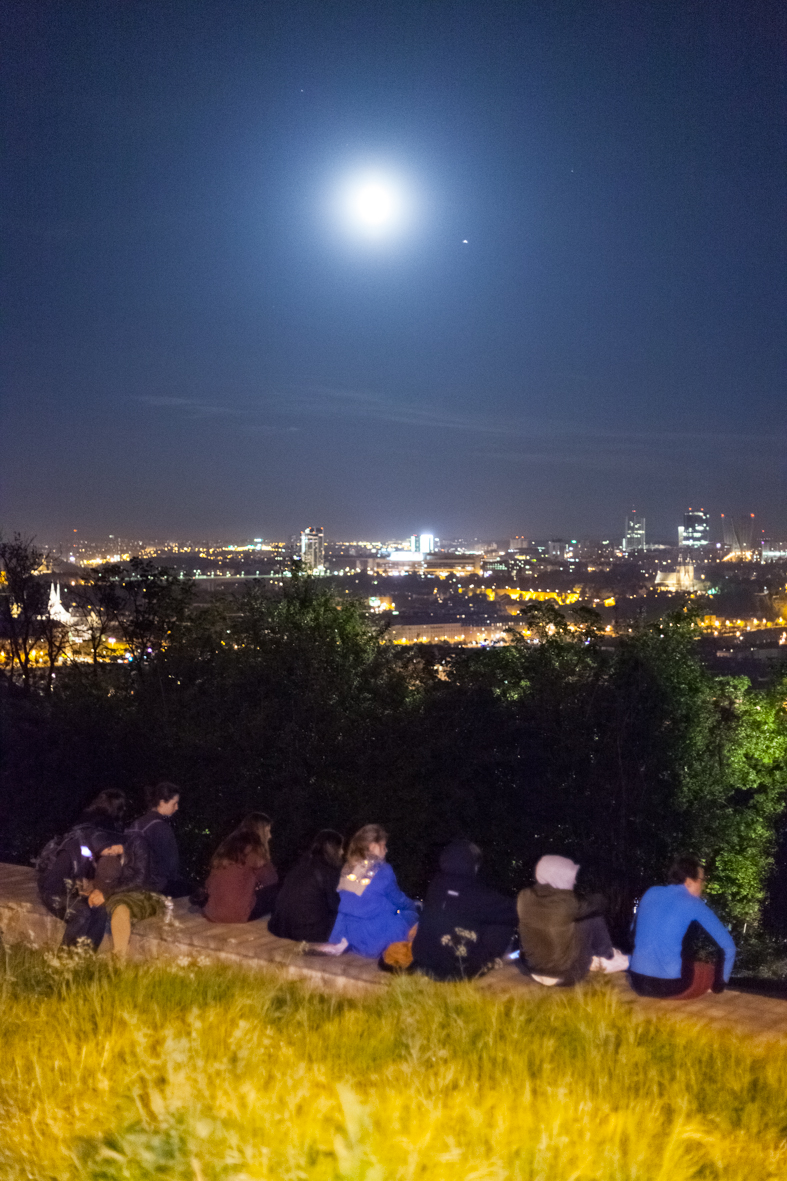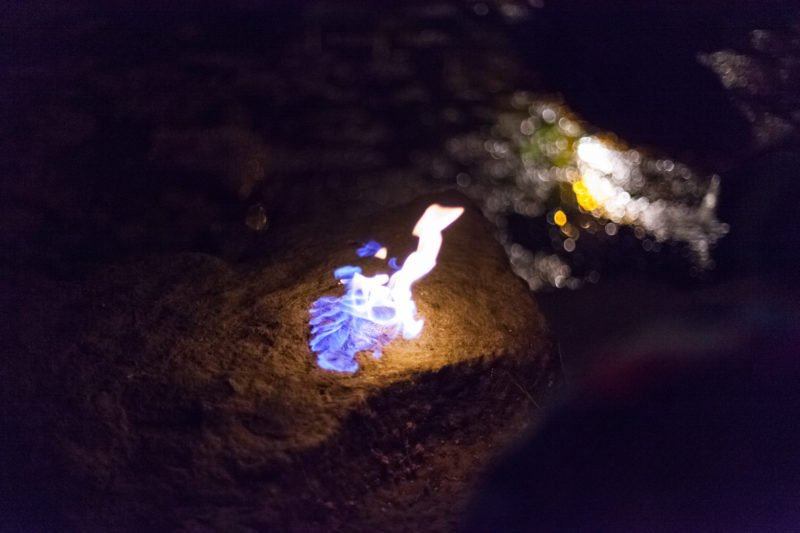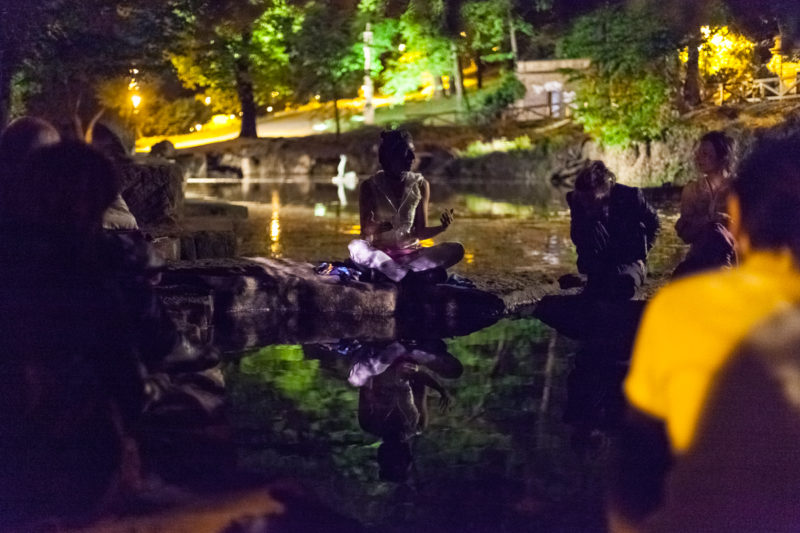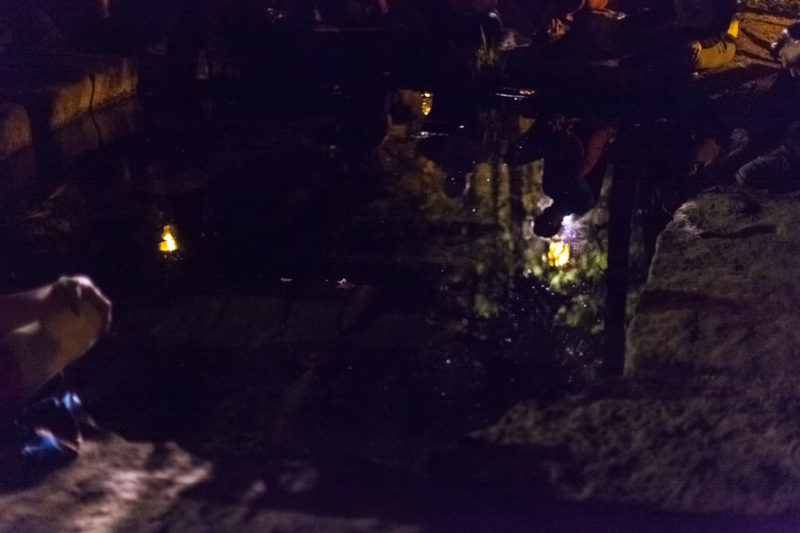Harvesting Darkness by Zuzana Žabková, Lucie Mičíková, and Nik Timková at FUTURA, Prague
Harvesting Darkness
Zuzana Žabková, Lucie Mičíková, and Nik Timková
Curated by Viktor Čech
April 24 – June 17, 2018
In their joint exhibition Harvesting Darkness, artists Zuzana Žabková, Lucie Mičíková and Nik Timková transform a part of the Futura Gallery into a setting where the viewer can experience their imaginative attempt to trade our self-destructive civilisation for a dark organic world in which new possibilities for existence may flourish. Working at the intersection of the artists’ own idiosyncratic aesthetic expression, discourses of post-human thought, and speculative fantasy literature, the artists try to create a synthesis in which the viewer is also involved.
Darkness
The word ‘darkness’ may cause negative feelings in some, conjuring ideas of emptiness and fear. Darkness is what the representatives of the Enlightenment movement of the 18th century considered to be the source of ignorance, evil and negative emptiness. Darkness is a place where the gaze can’t reach, and neither can reason and order; it is a hideout for everything and everyone wanting to escape the spotlight of modern reason and technology-based culture built by the masculine subject.
Darkness can be found in the empty spaces of the universe above us and, especially, beneath our feet: consider parables where underground is seen as underworld, hell, a place devoid of the life-giving rays of the Sun. It is inextricably linked to darkness.
Hummus
On the border of light and darkness, of animate and inanimate, there exists a very thin layer: the existential basis of most life on this planet. Life, emerging from this fertile layer constantly enriched by the dying biological material and corroding geological structures, returns, again and again, to its active role. Hummus is the environment in which this constant metamorphosis occurs; it is both life-giving material and the process itself. Hummus is the intersection of biological species and states of being, of organic and inorganic. The processes taking place in it have inspired the modern movement promoting sustainable approaches of human life to nature and economy as well as human presence in this world.
However, permaculture can include the human as such and social behaviour, as well as entire structures of human communities and their social relations.
Compost
The artificially created permaculture environment of compost is a convenient parable for the means of coexistence. In fact, Zuzana Žabková, Lucie Mičíková and Nik Timková seem to convert the underground space of the Futura Gallery into an analogy. Their project results in an intersection of two worlds: “our” world which is rationally categorised by the distant masculine subject and the organic labyrinth where the artists become goddesses performing a symbiotic ritual in which our aesthetic, biological, and existential realities merge into the diverse flow of the experienced present.
Guman
Here, humans are not (in the traditional humanist perspective) a being separated from the nature; rather, they are symbionts sharing the process with other entities and with the entire setting. Thus, humans become citizens of Terrapole where culture, technology and nature become one again. This vision is experienced now and here via the creative approach of its authors, be it at the gallery exhibition or at the occasion of a ritual performed on the last day of April at the during an intense night charged with numerous cultural archetypes.
Zuzana Žabková (b. 1987, Košice) studied fine art and choreography and makes use of both in her work, which often refers to the body and choreographic structures. Lucie Mičíková (b. 1986) uses paper and collage and is interested in the social role of architecture. Nik Timková (b. 1986) works mostly with objects, magic gestures and DIY rituals. Nik’s soft and malleable monumental objects refer to human corporeality and the transforming experience of human touch.
Photo: Tomáš Souček and Johana Pošová

